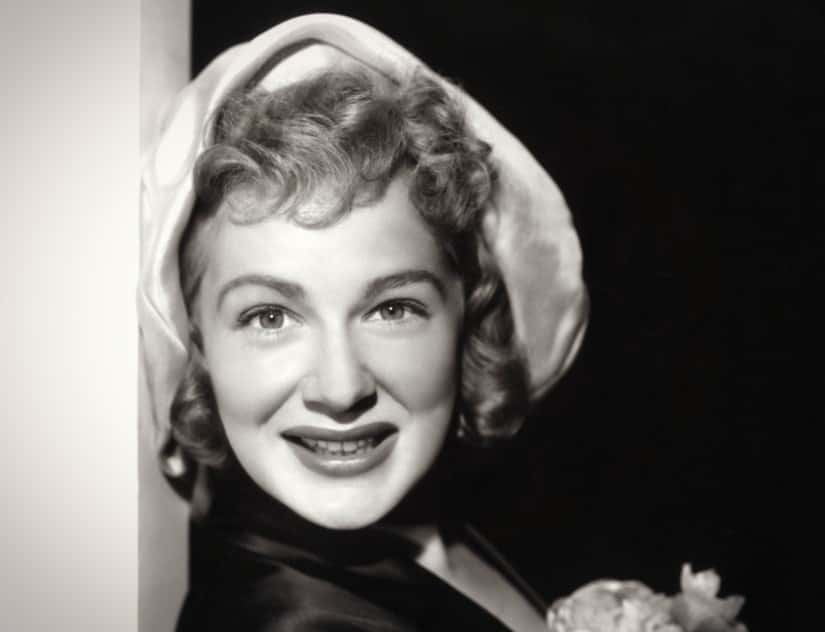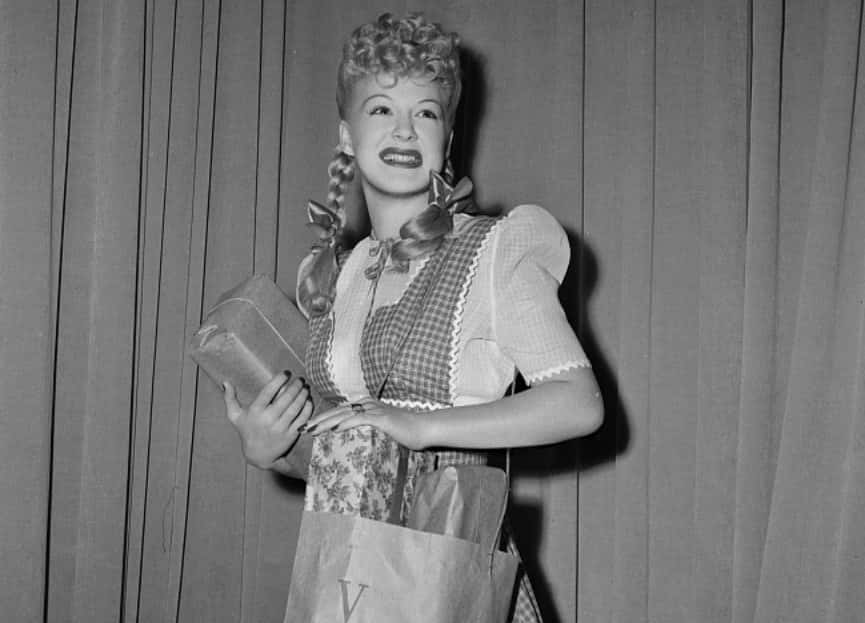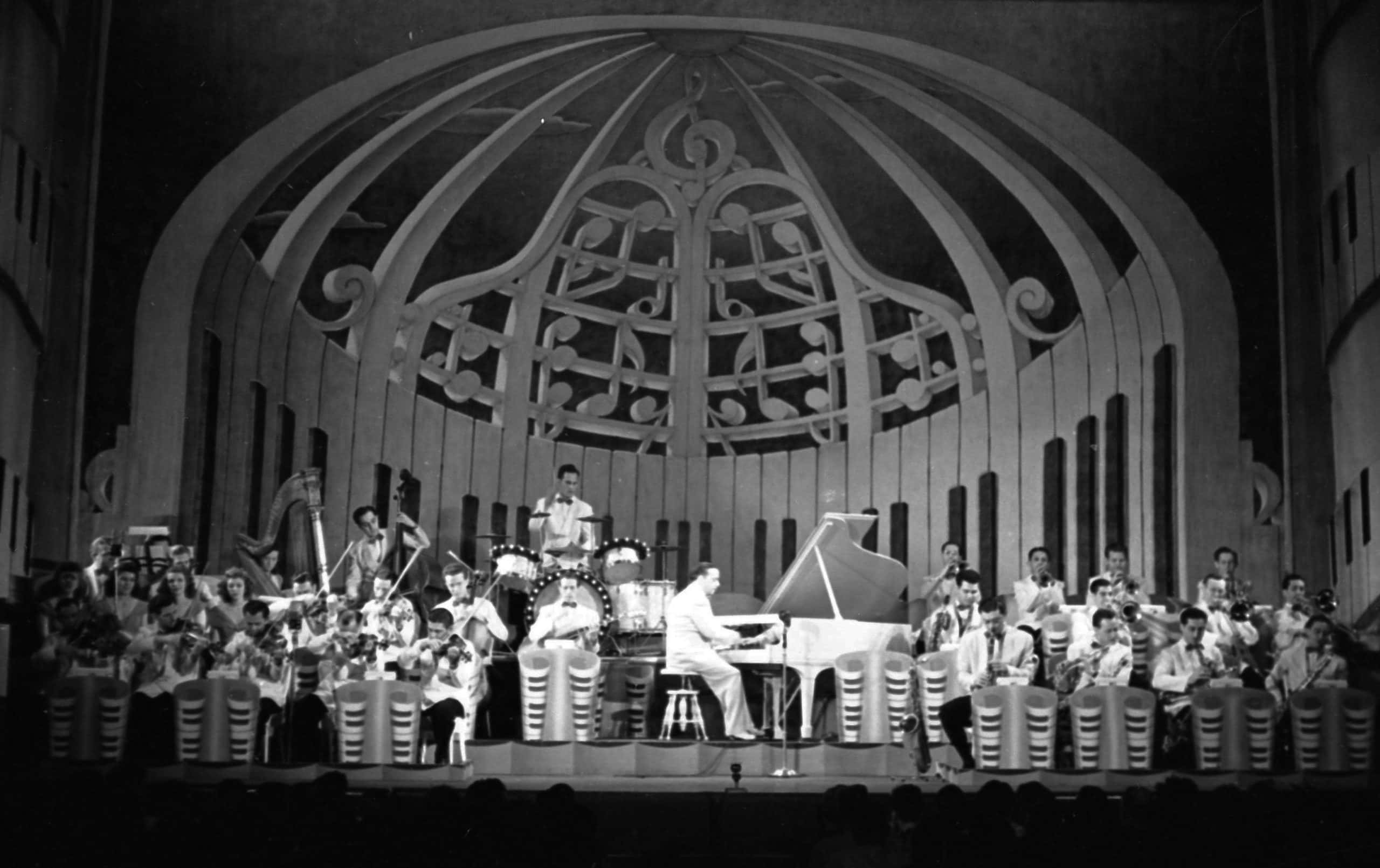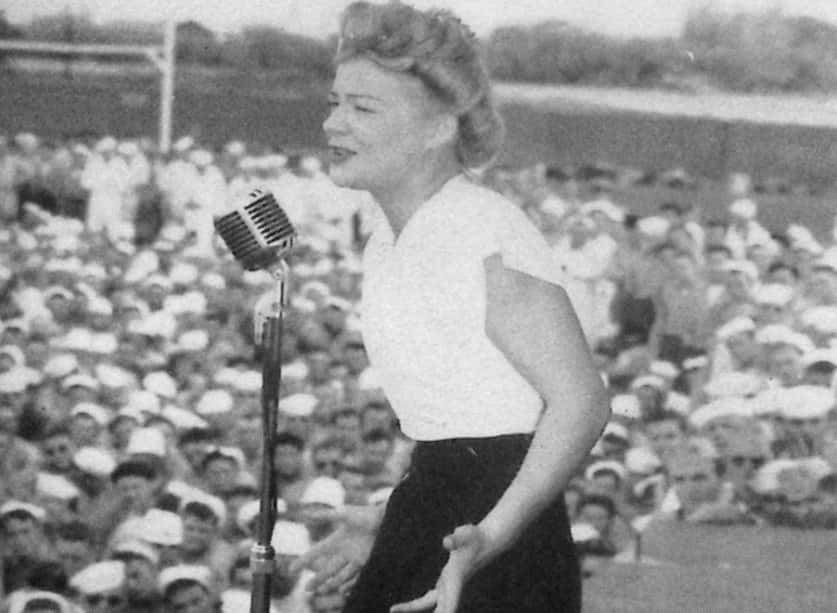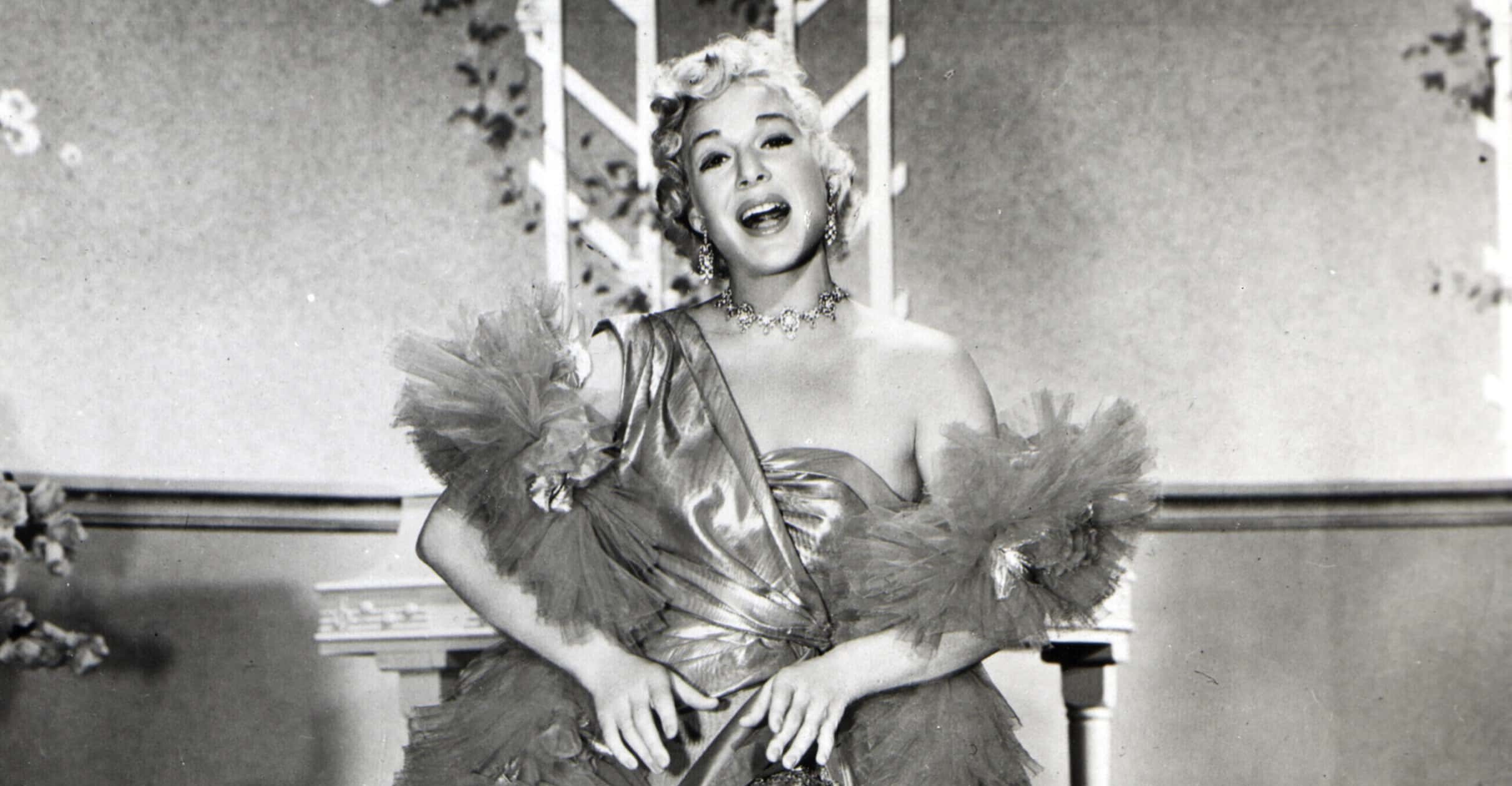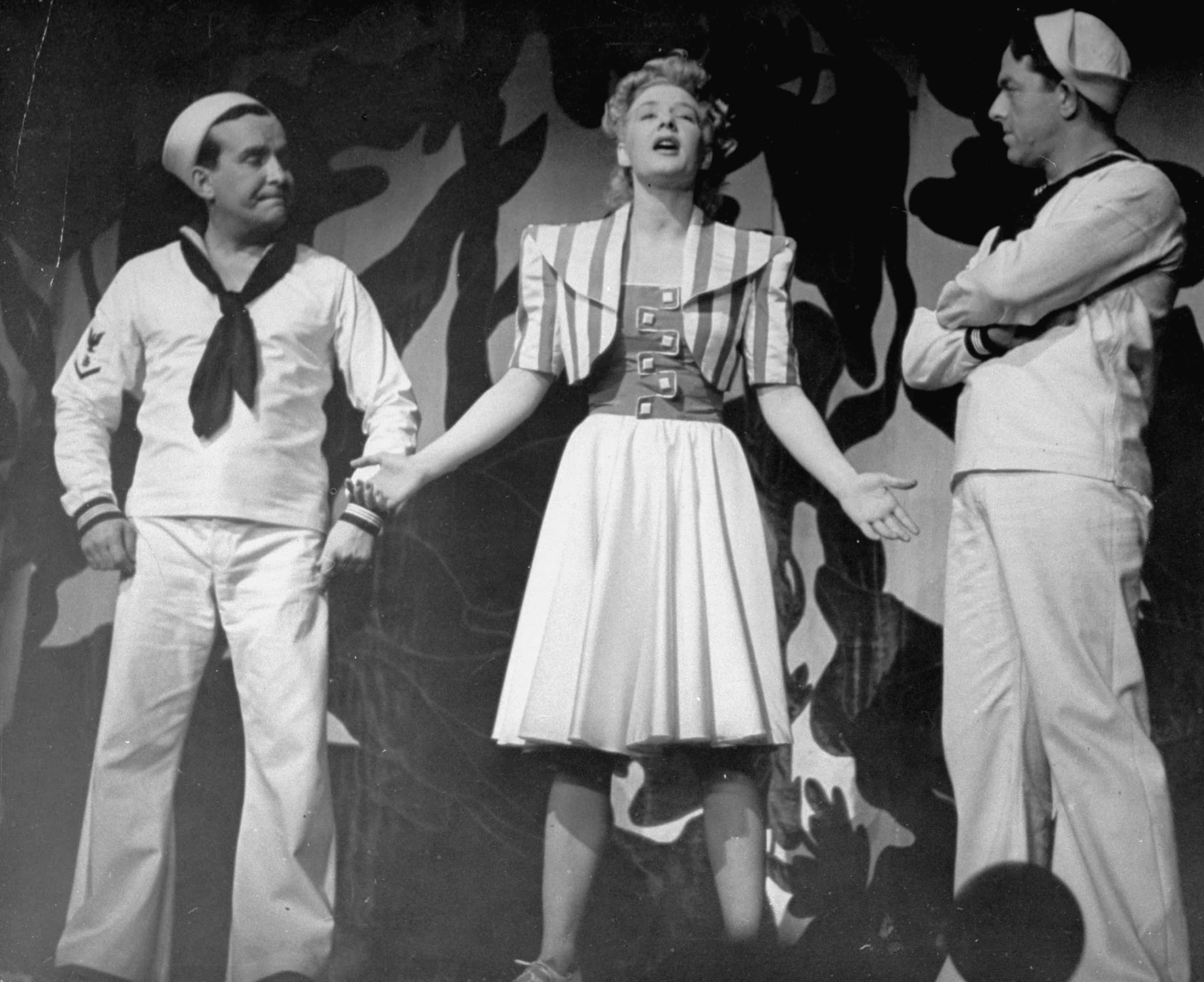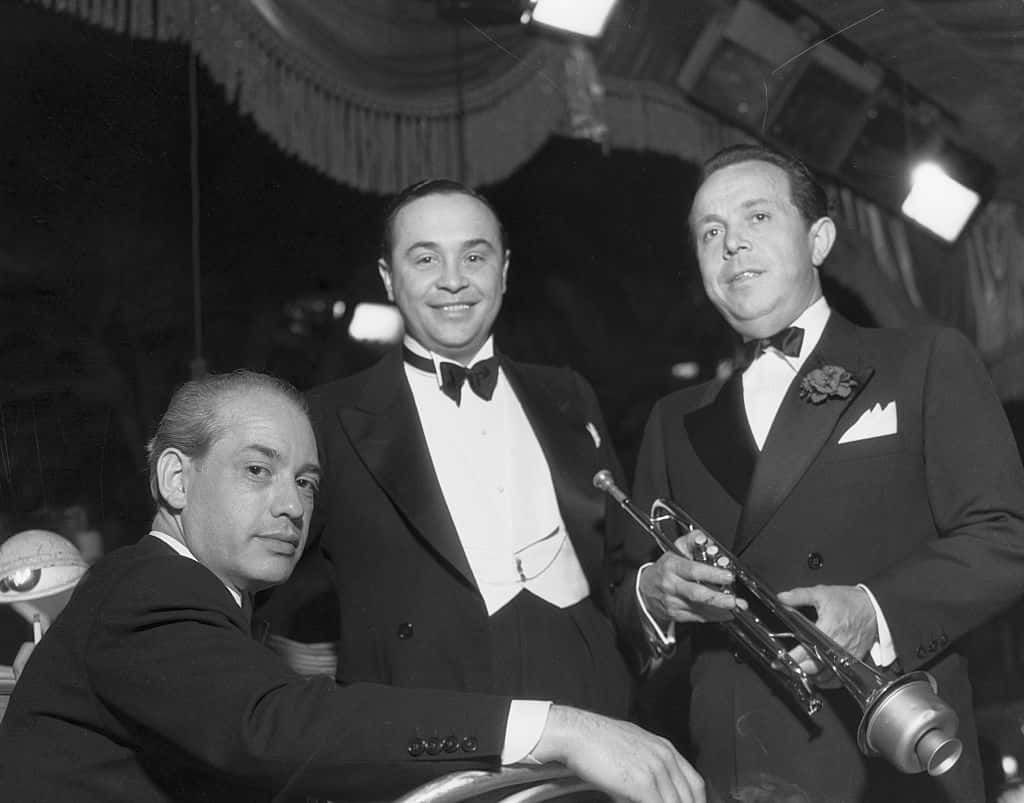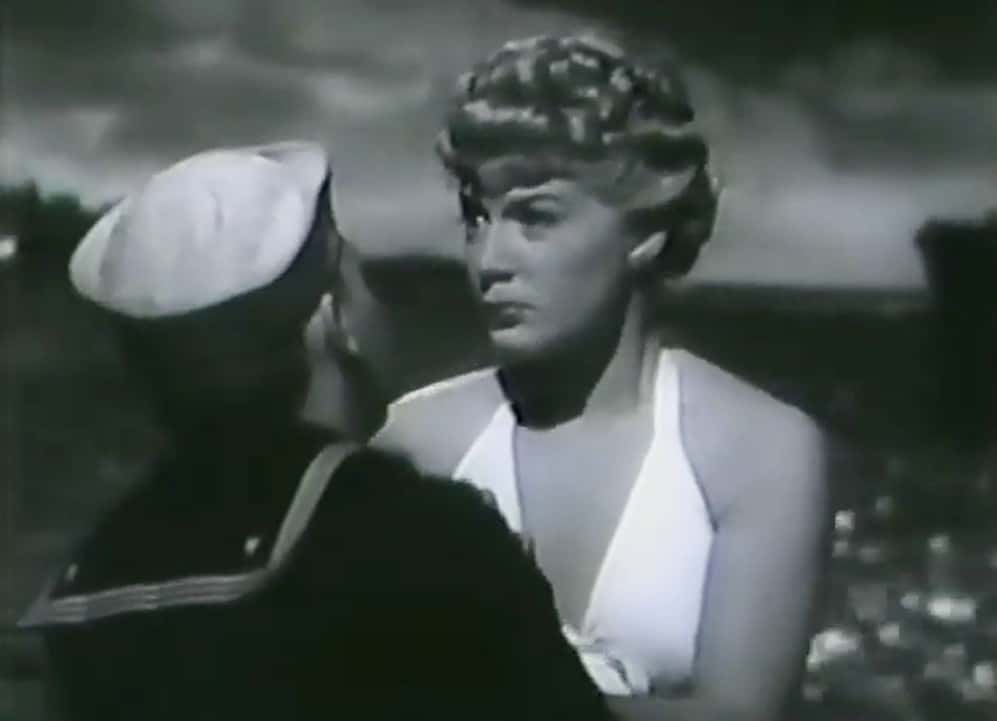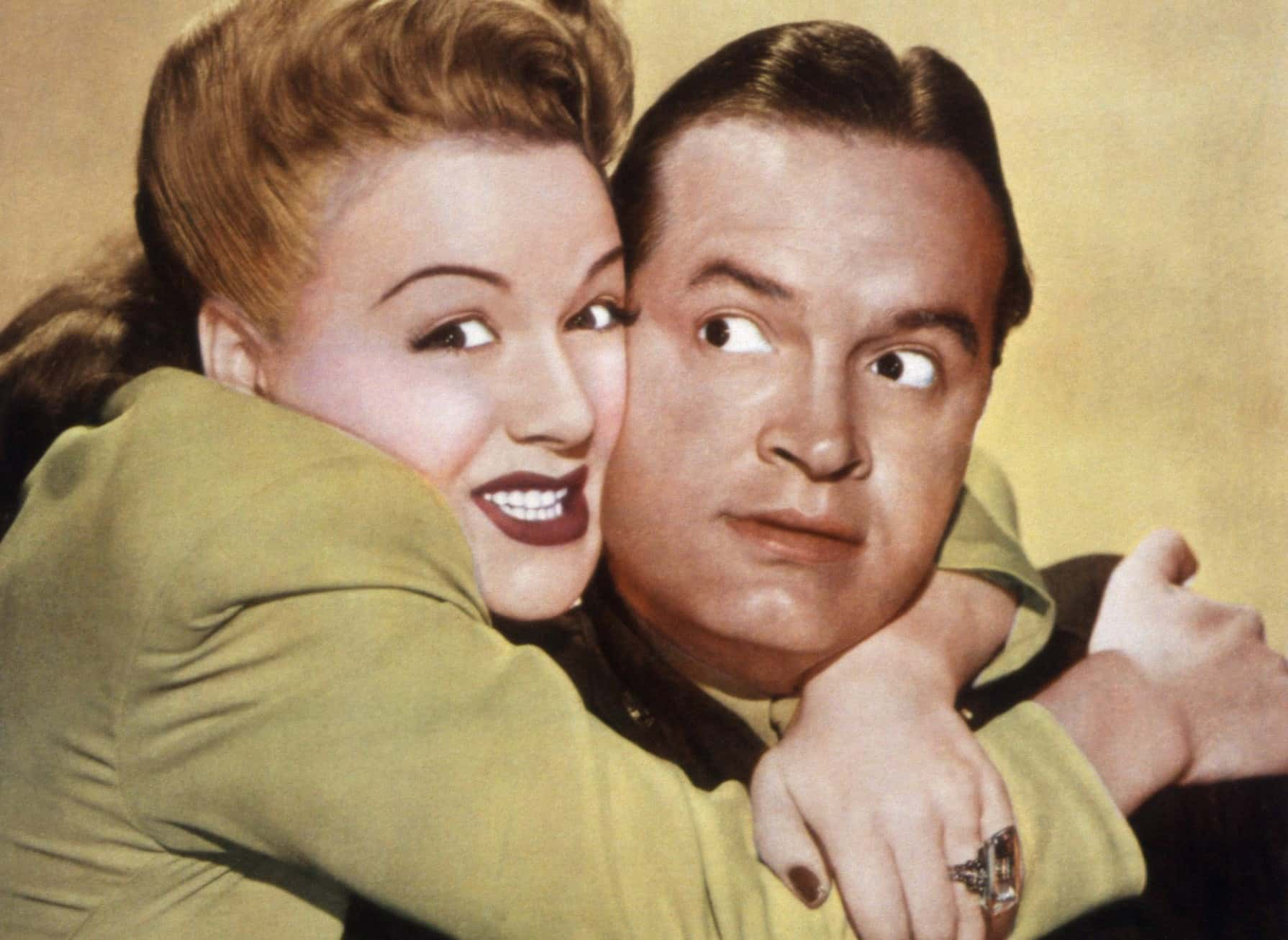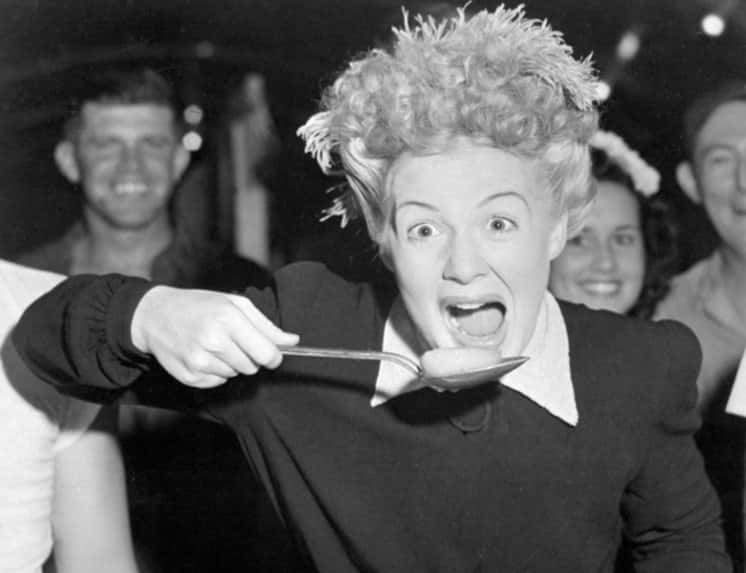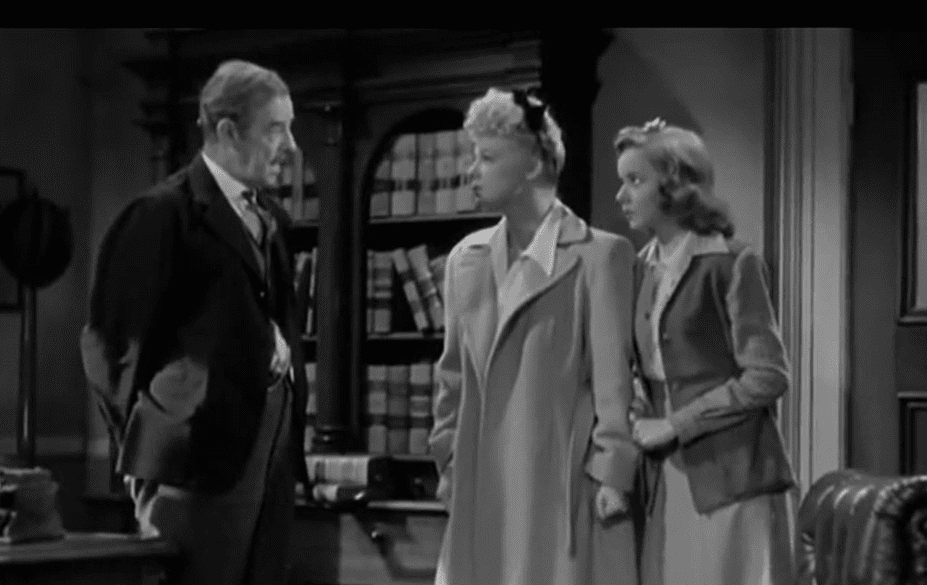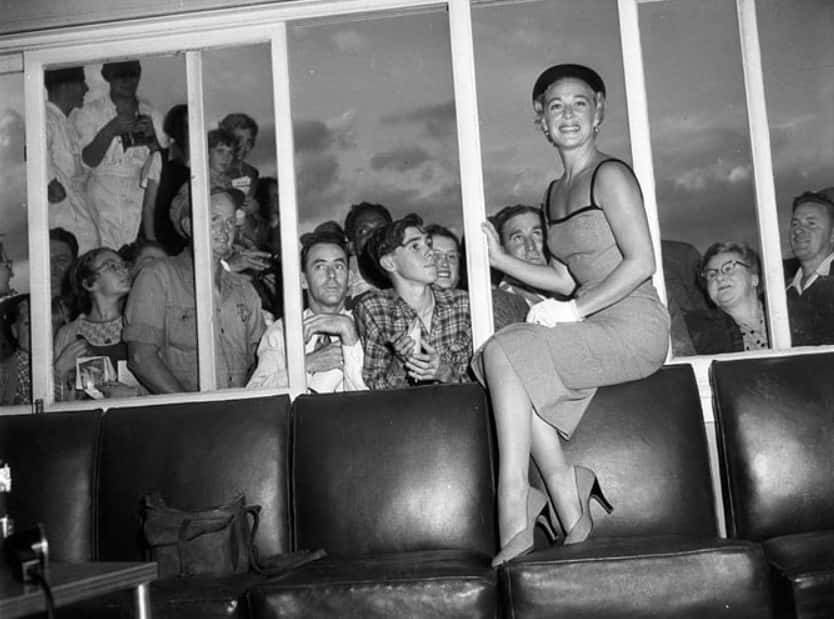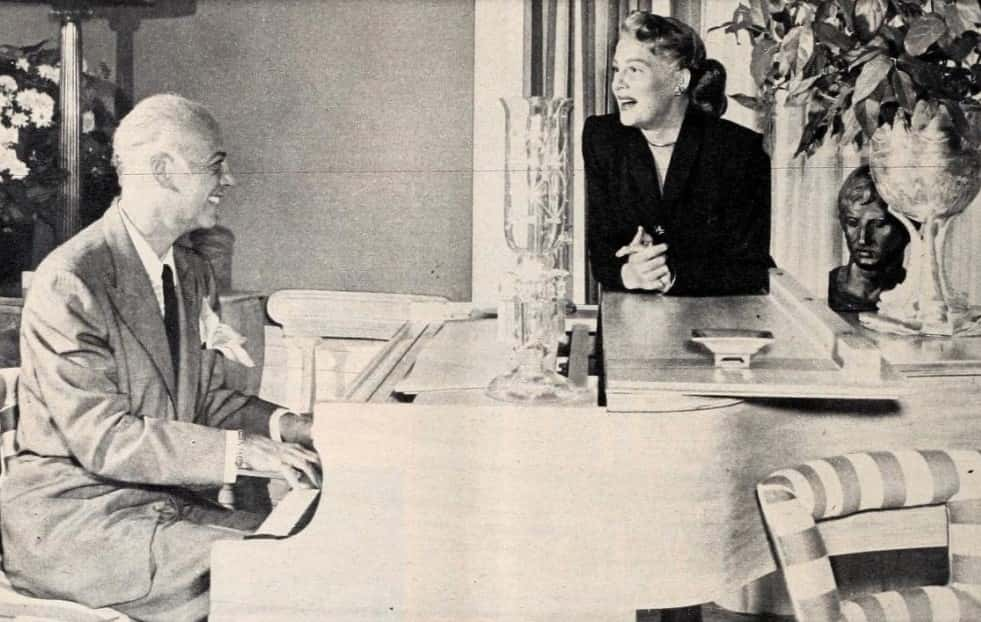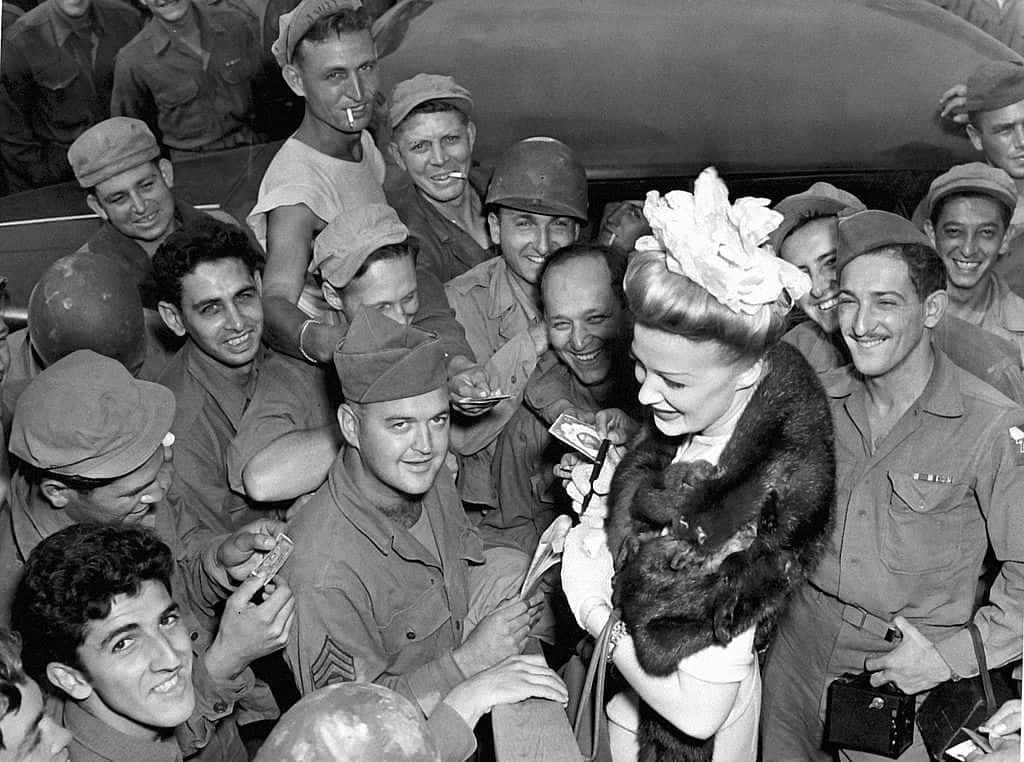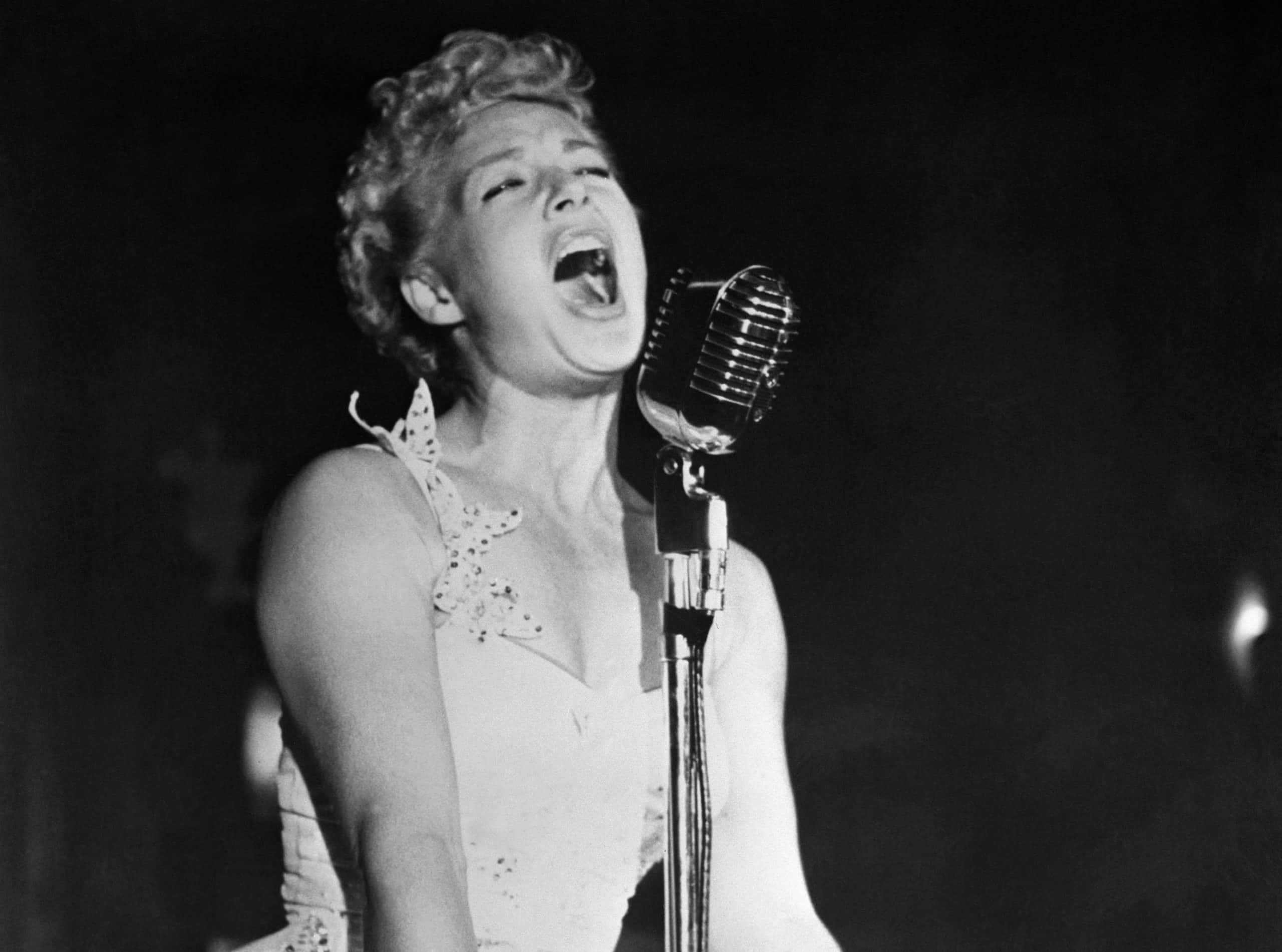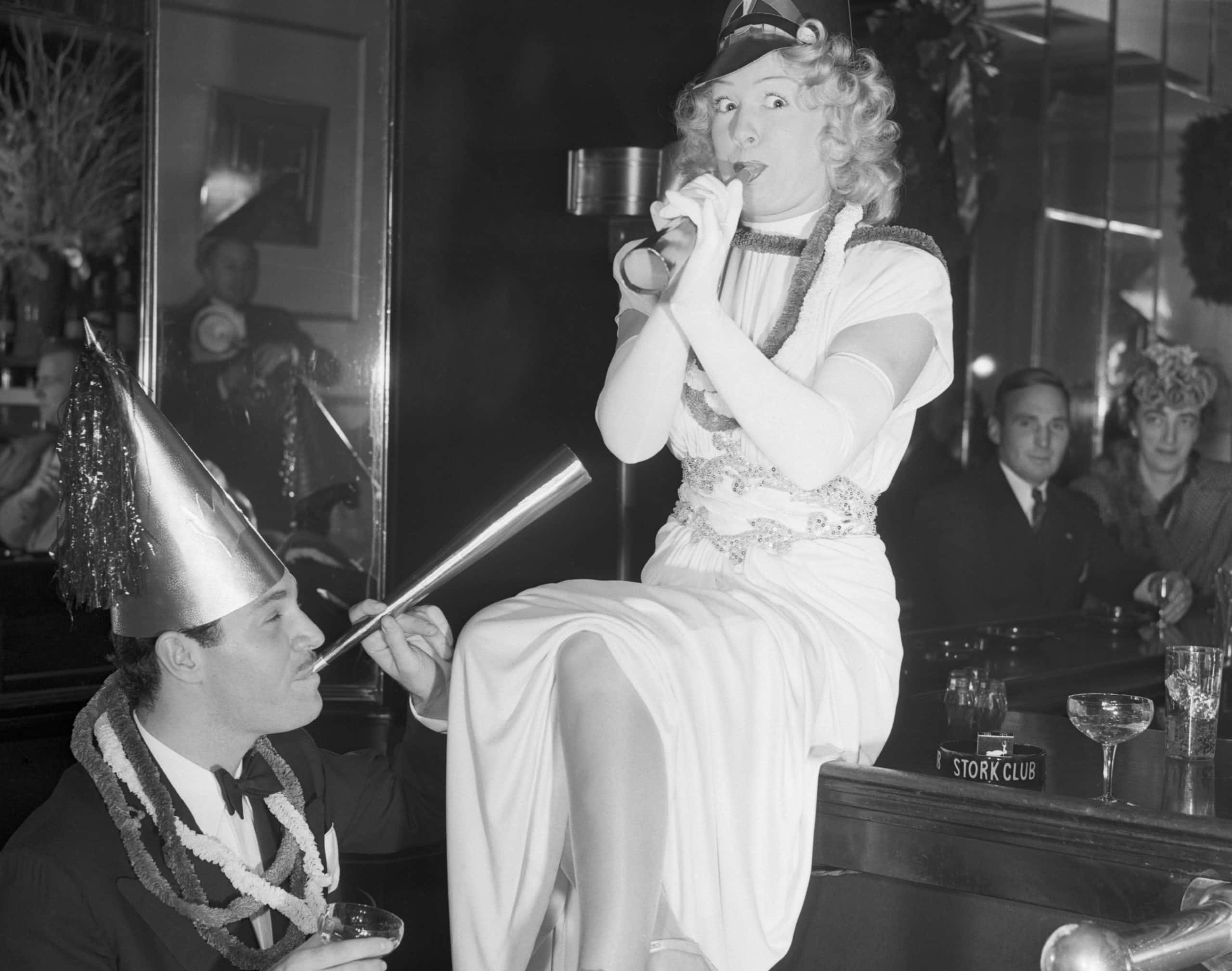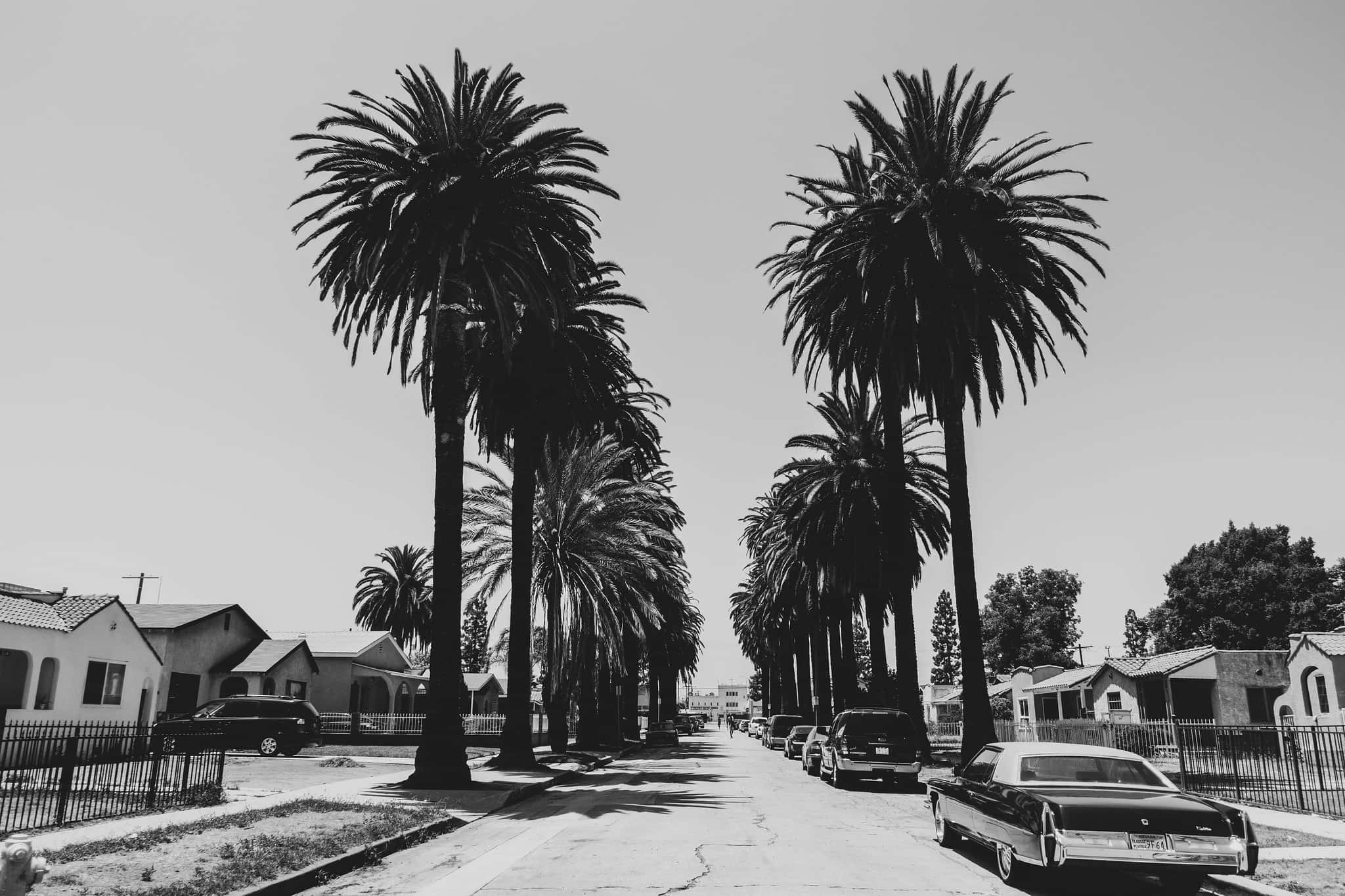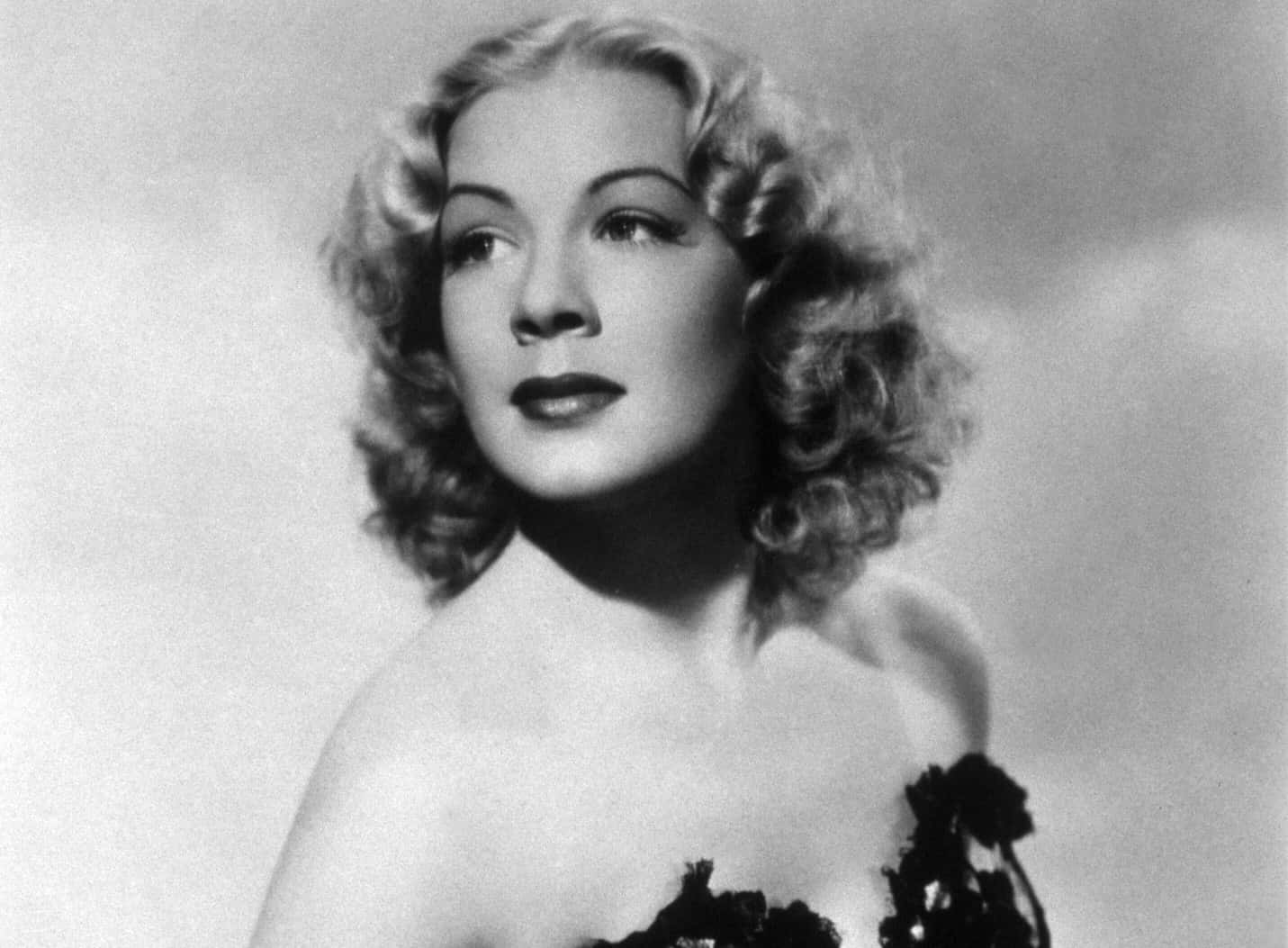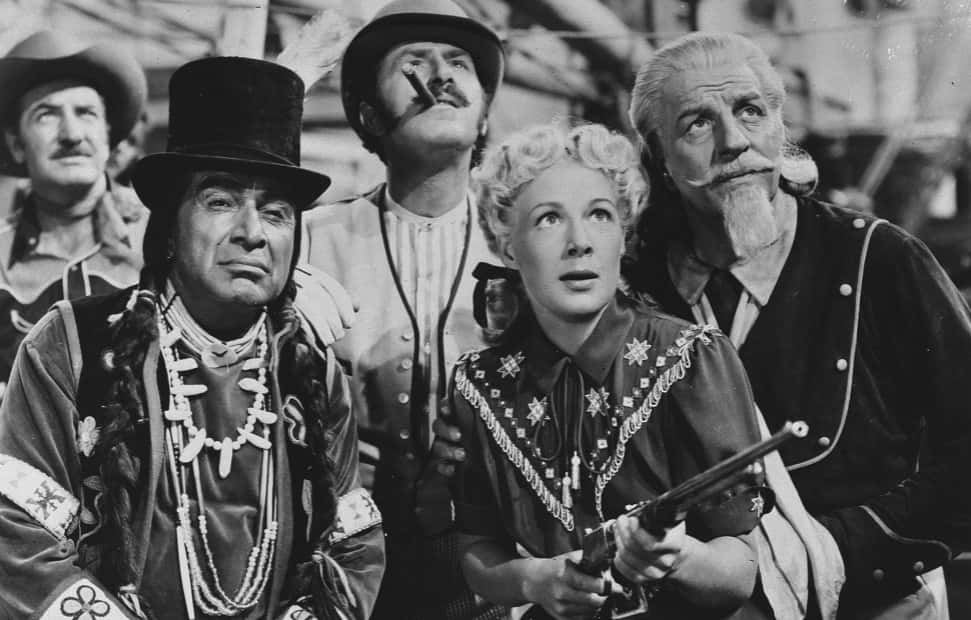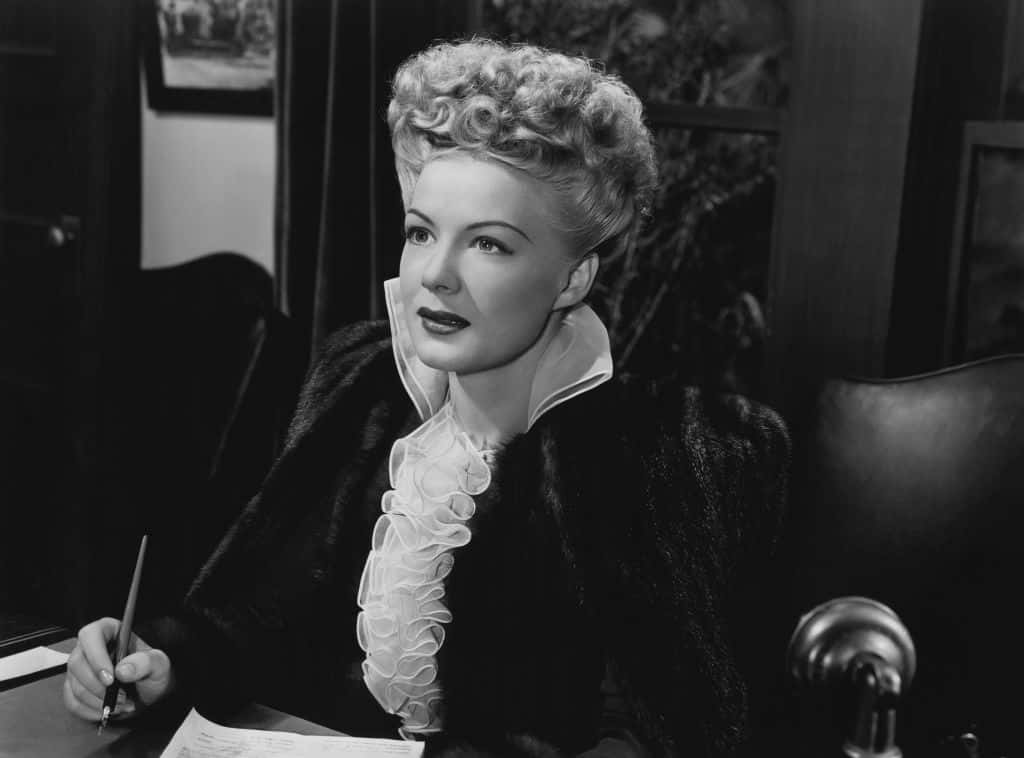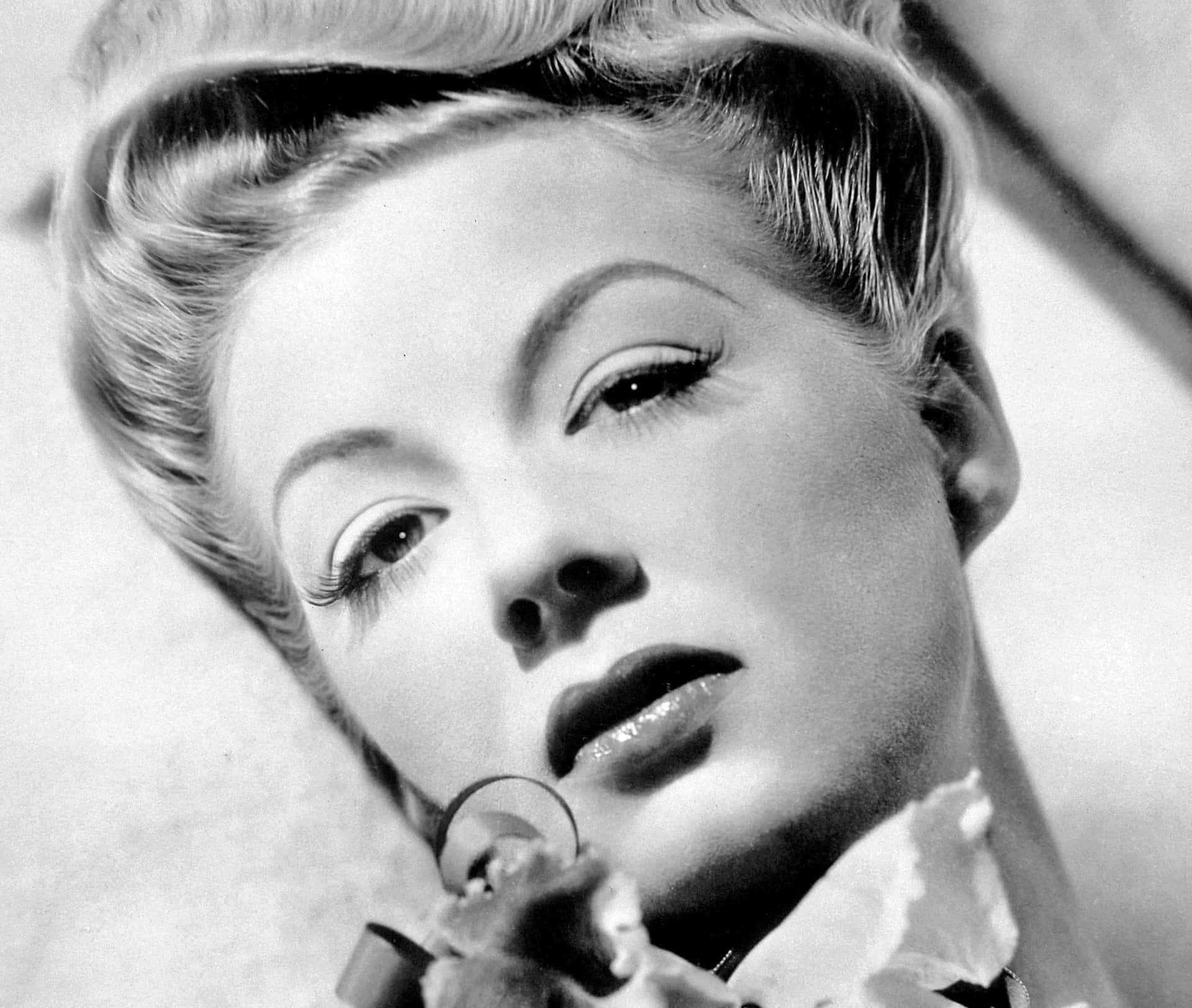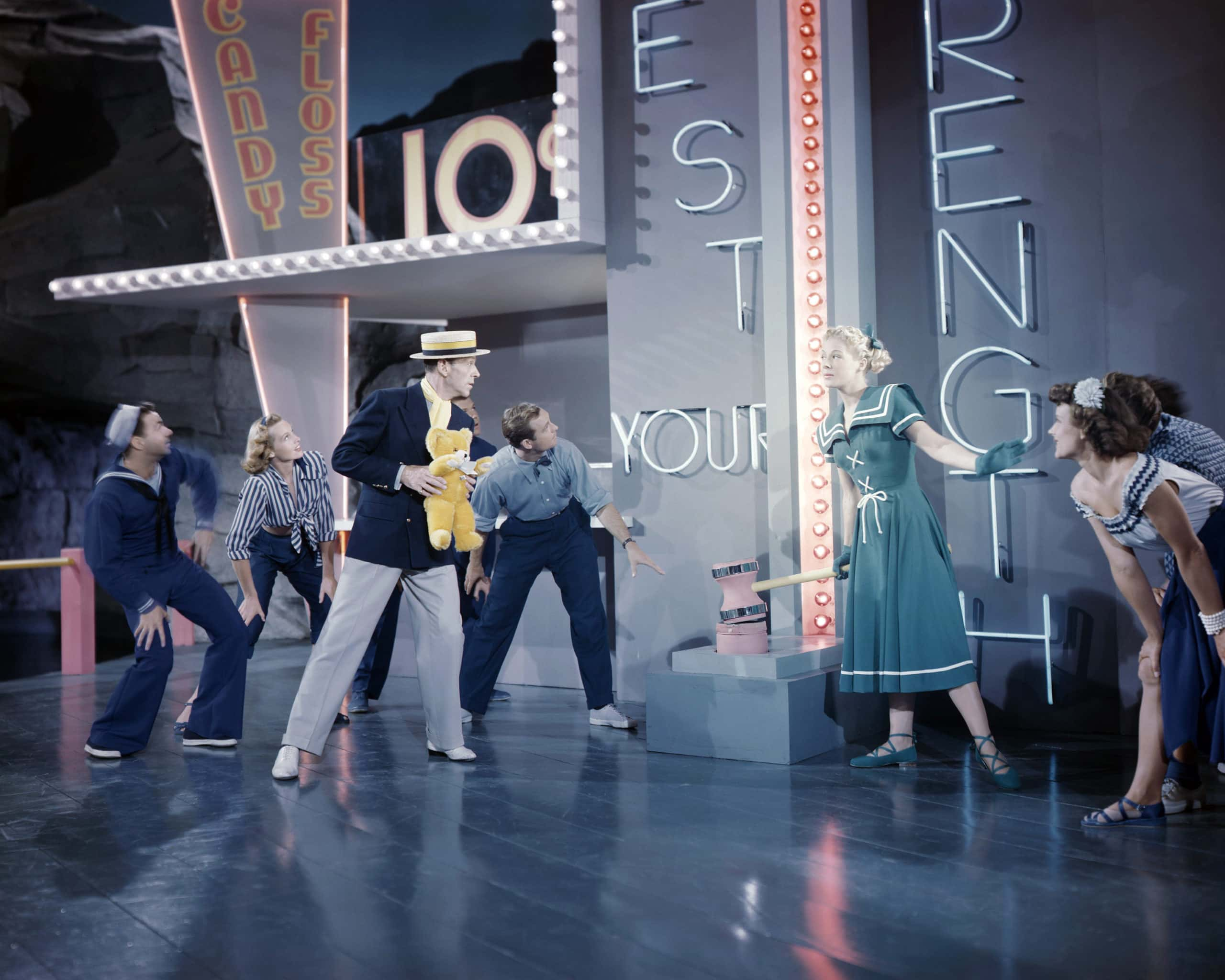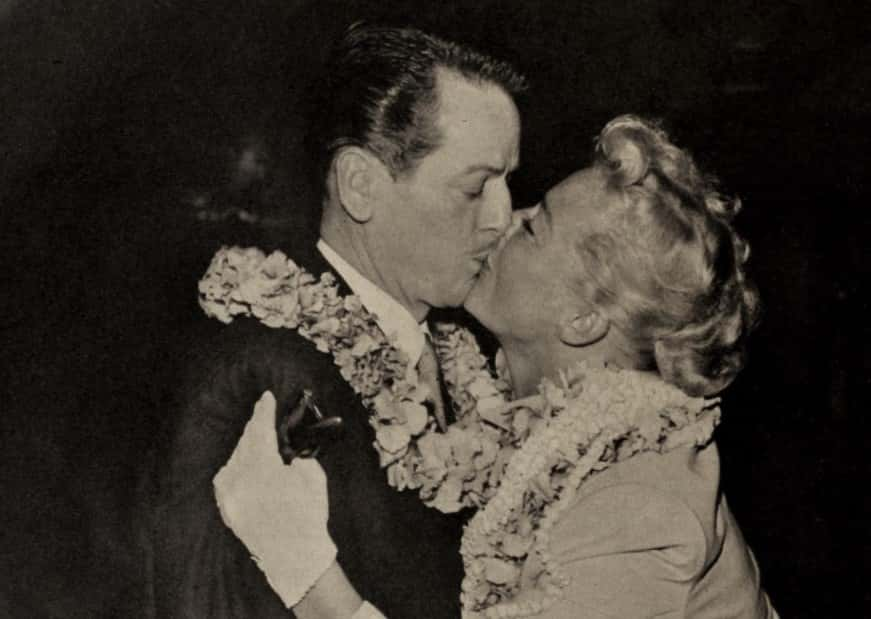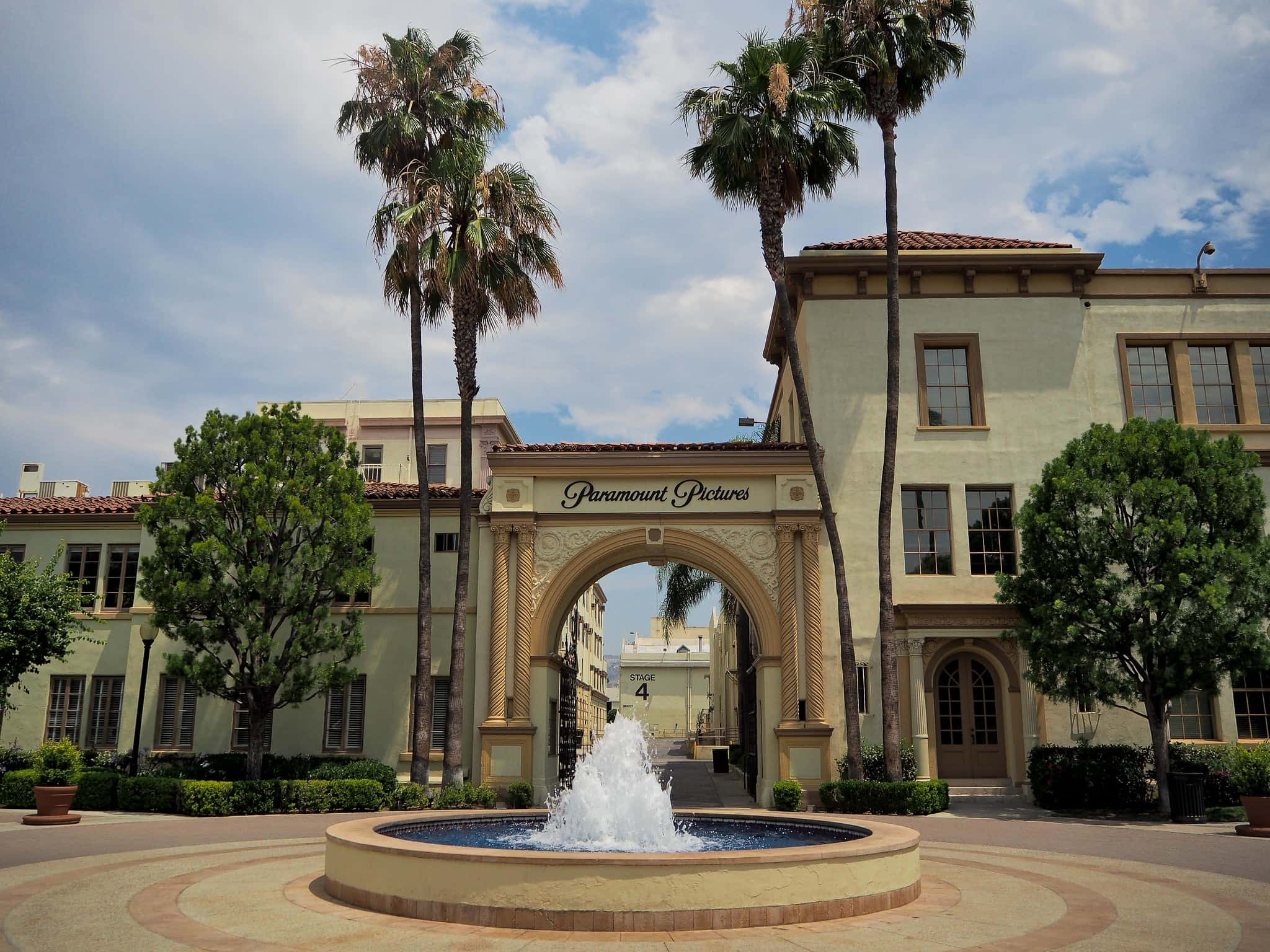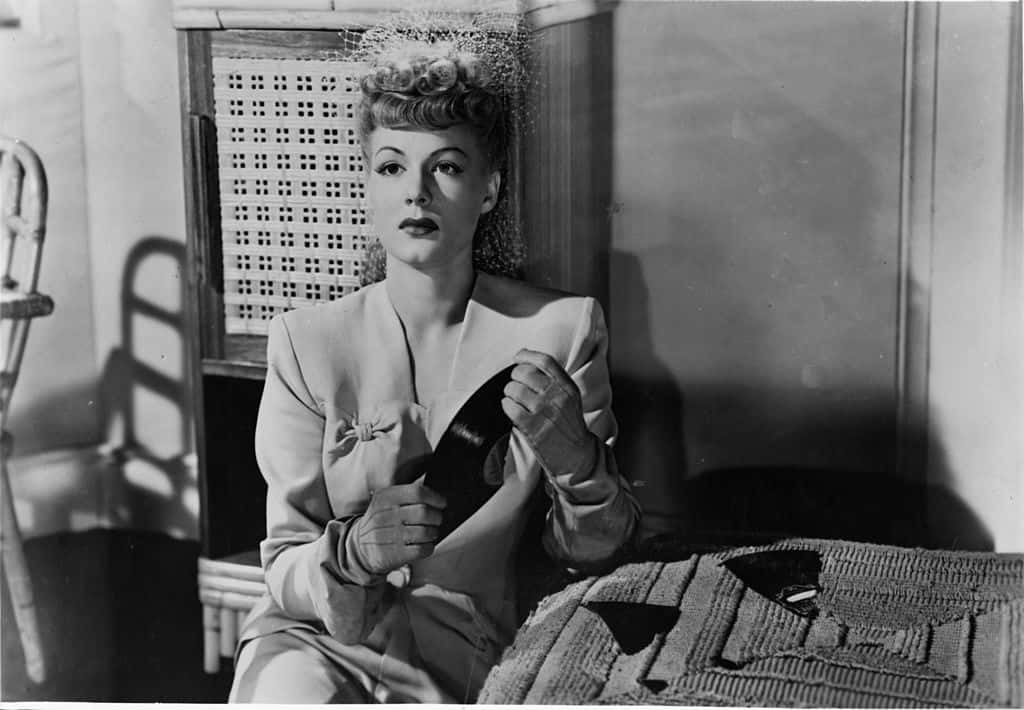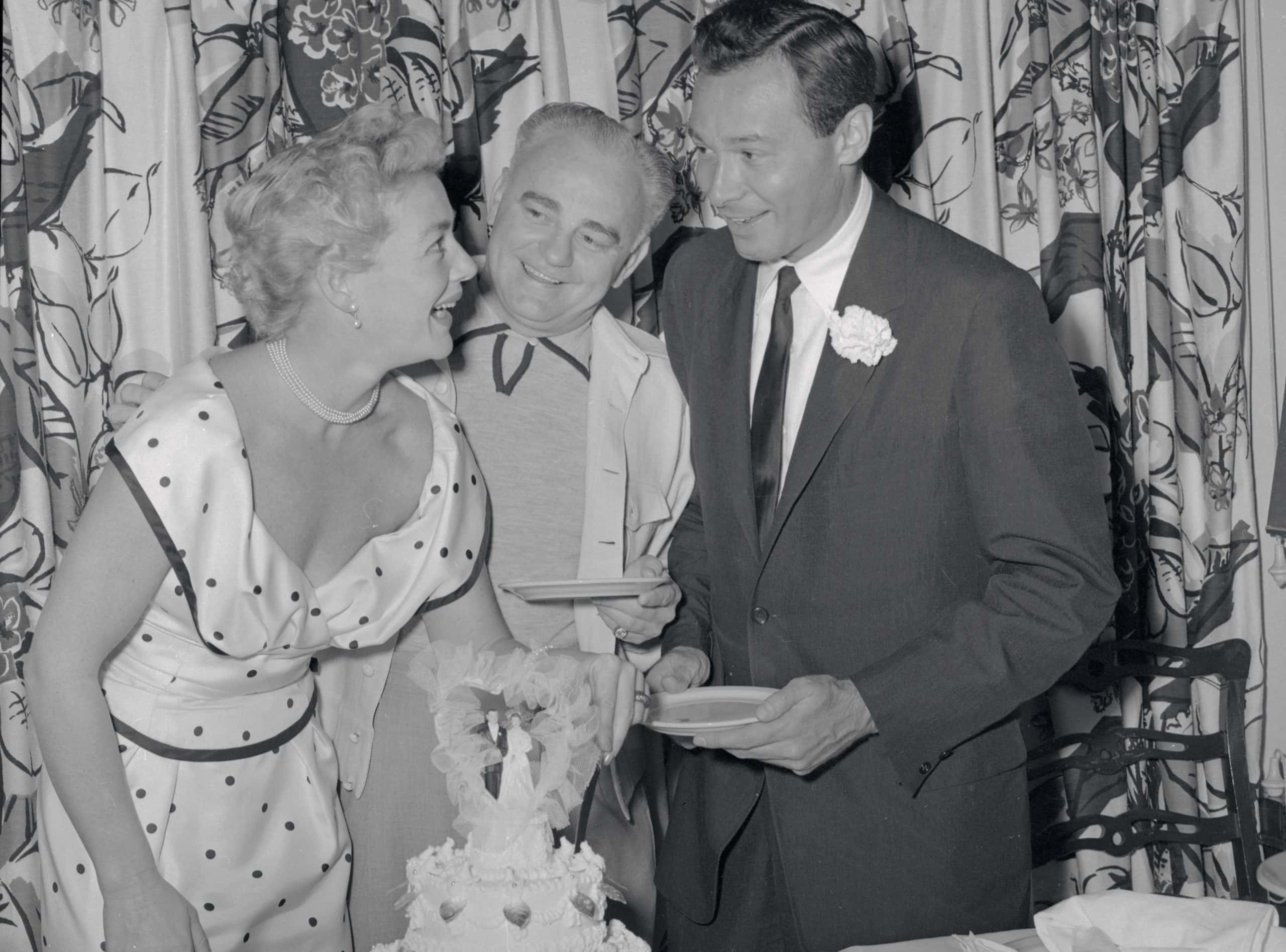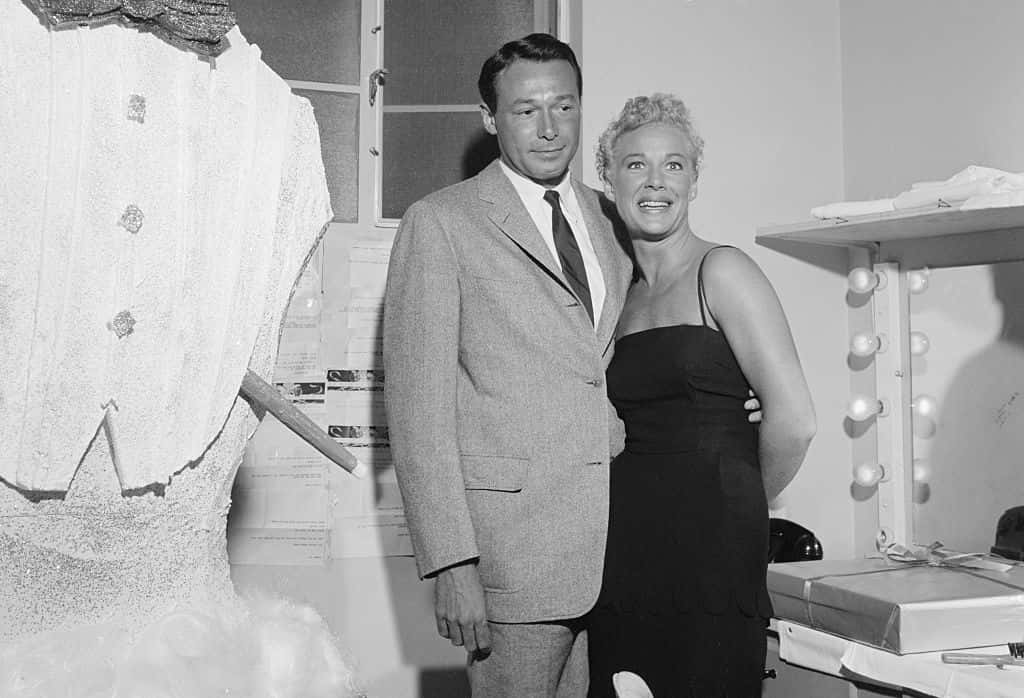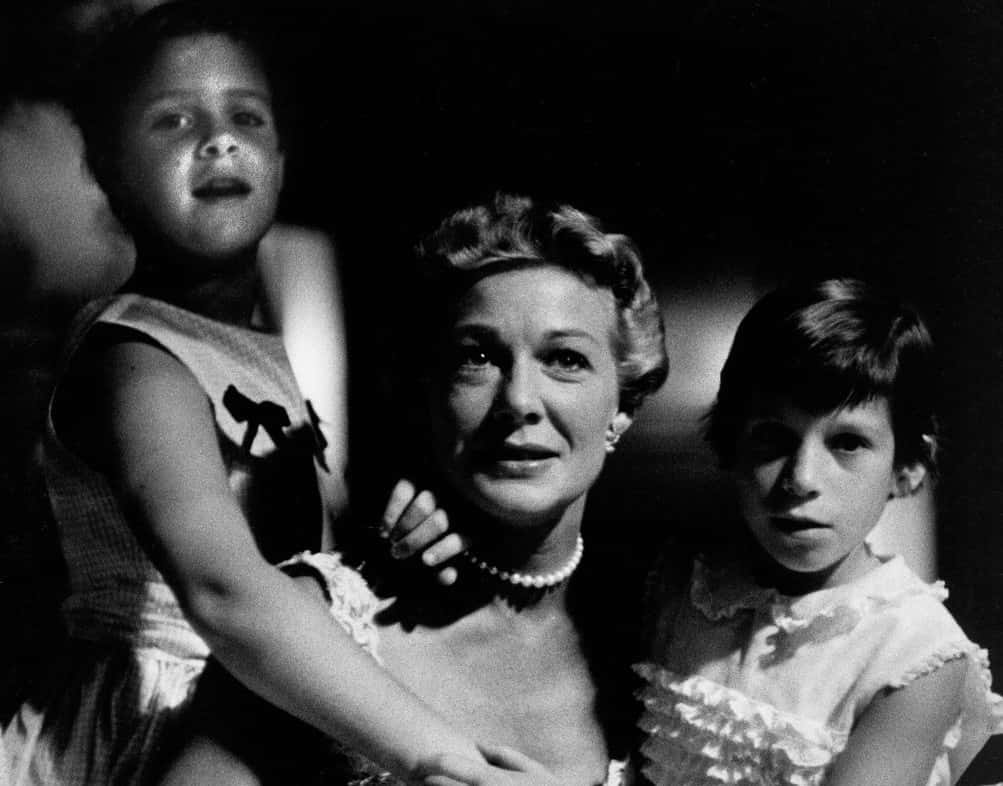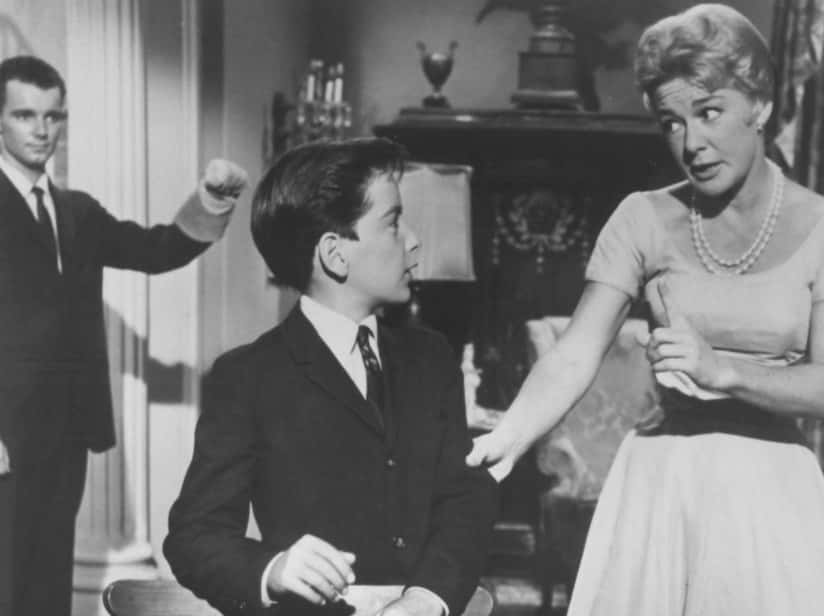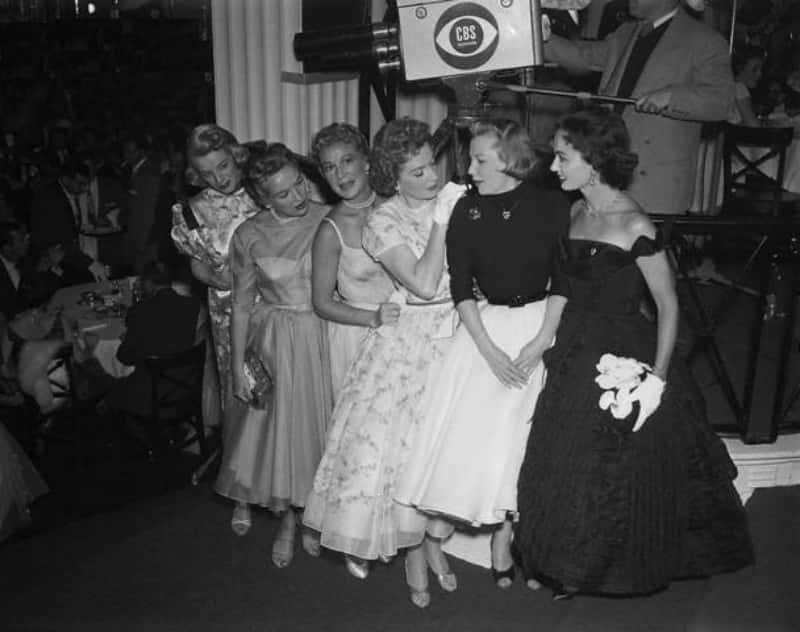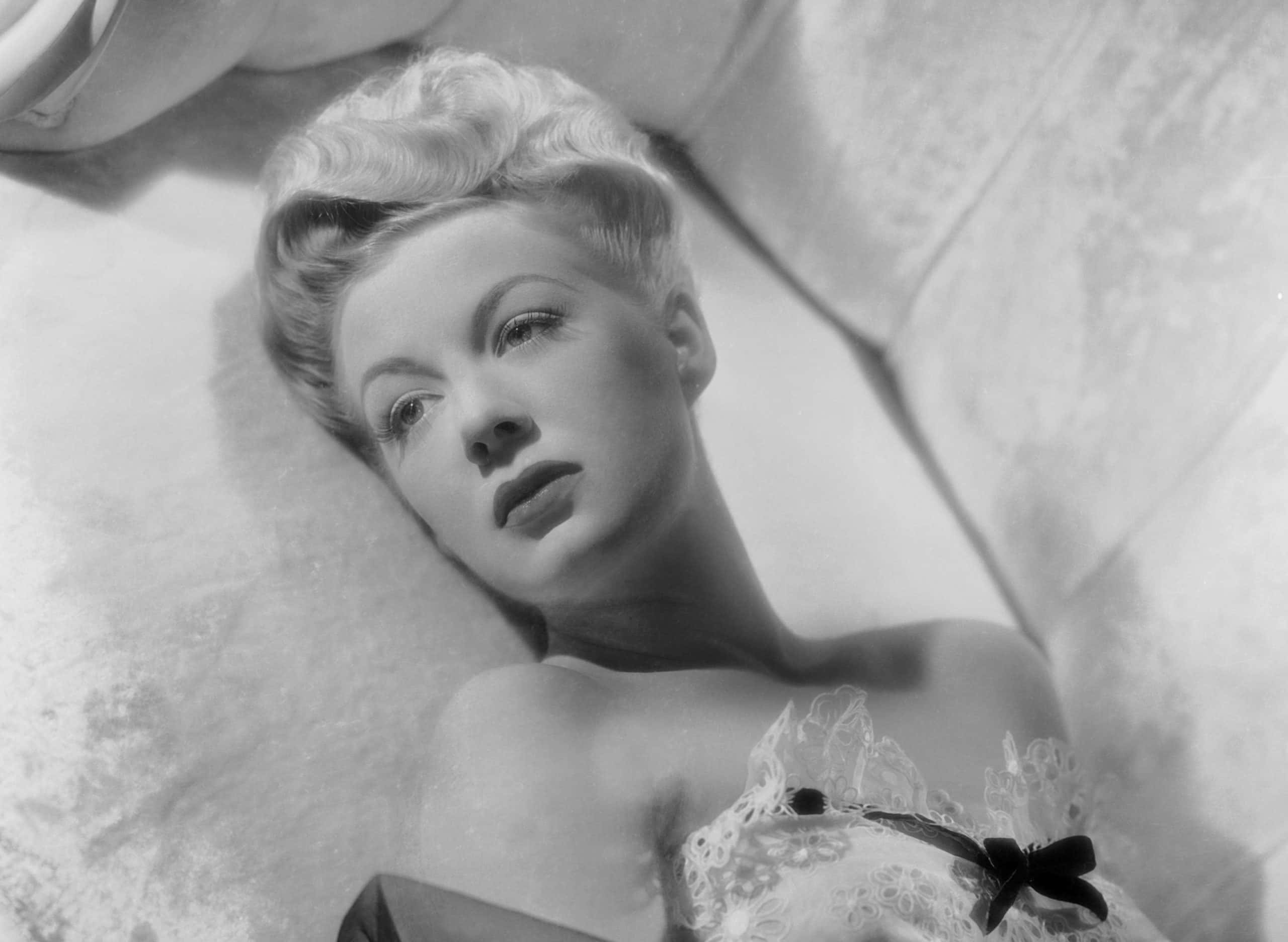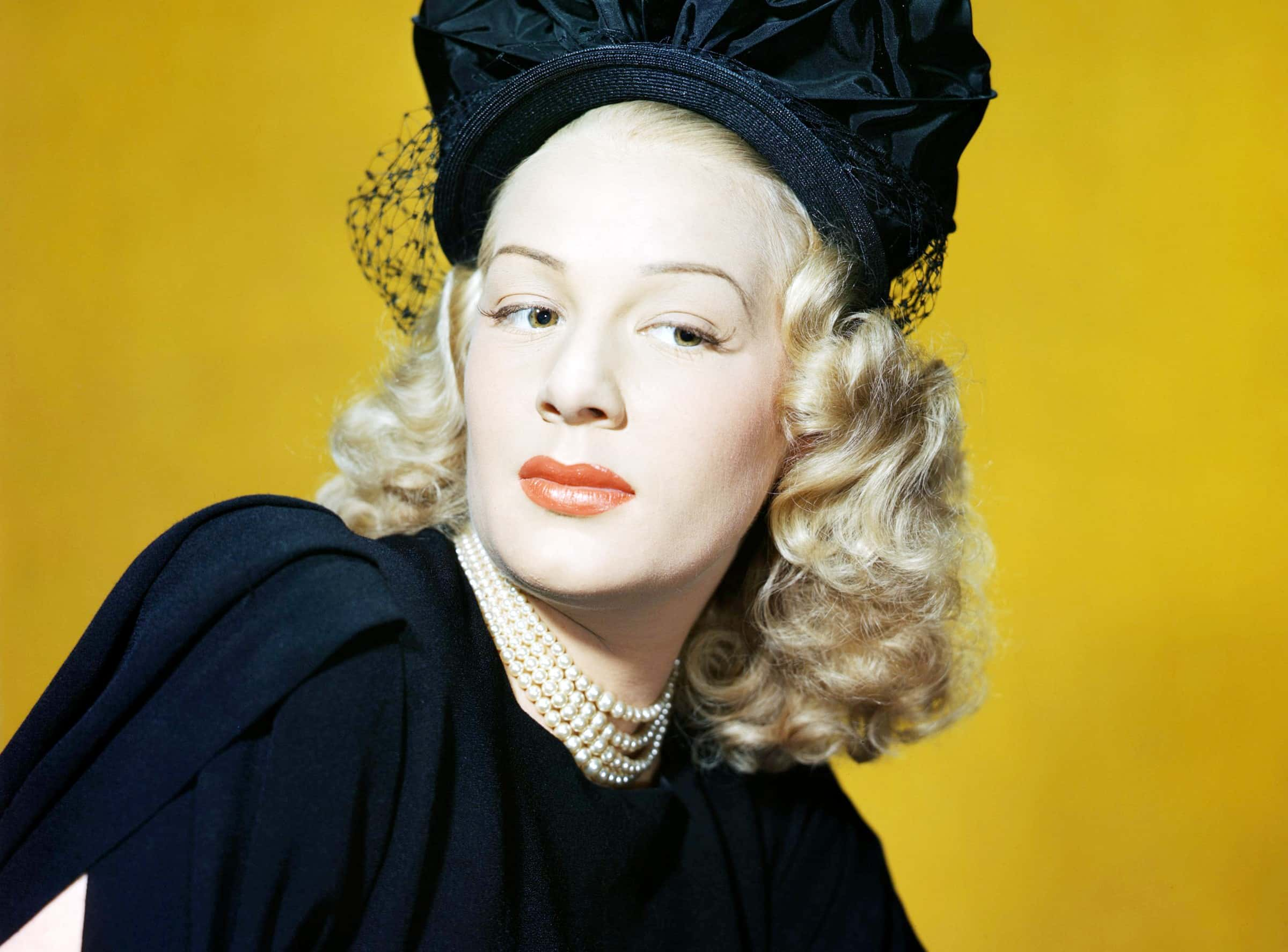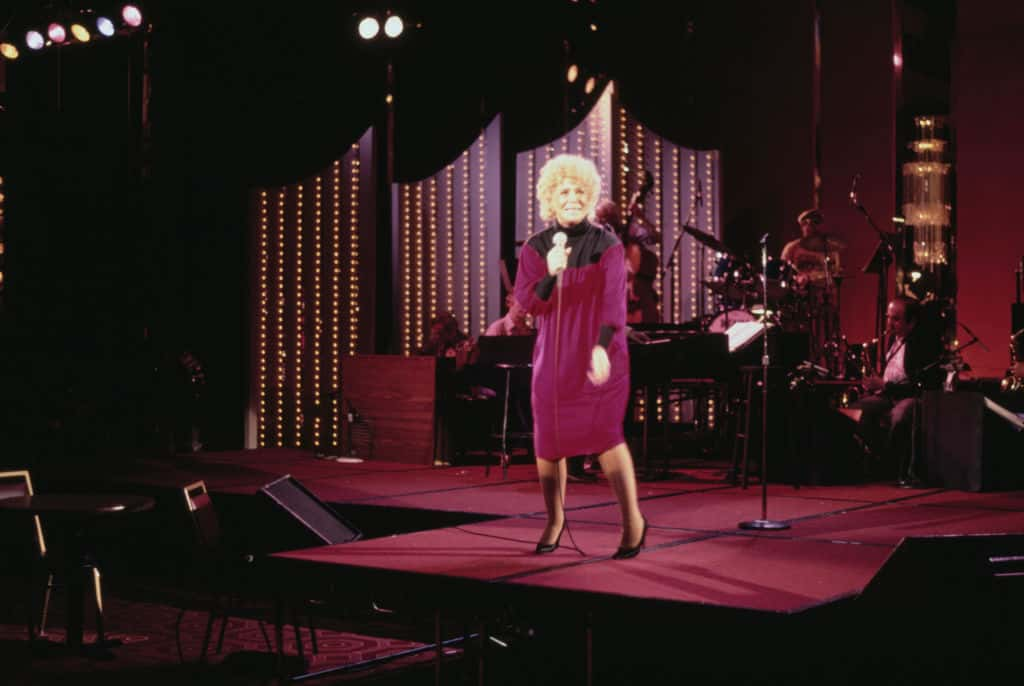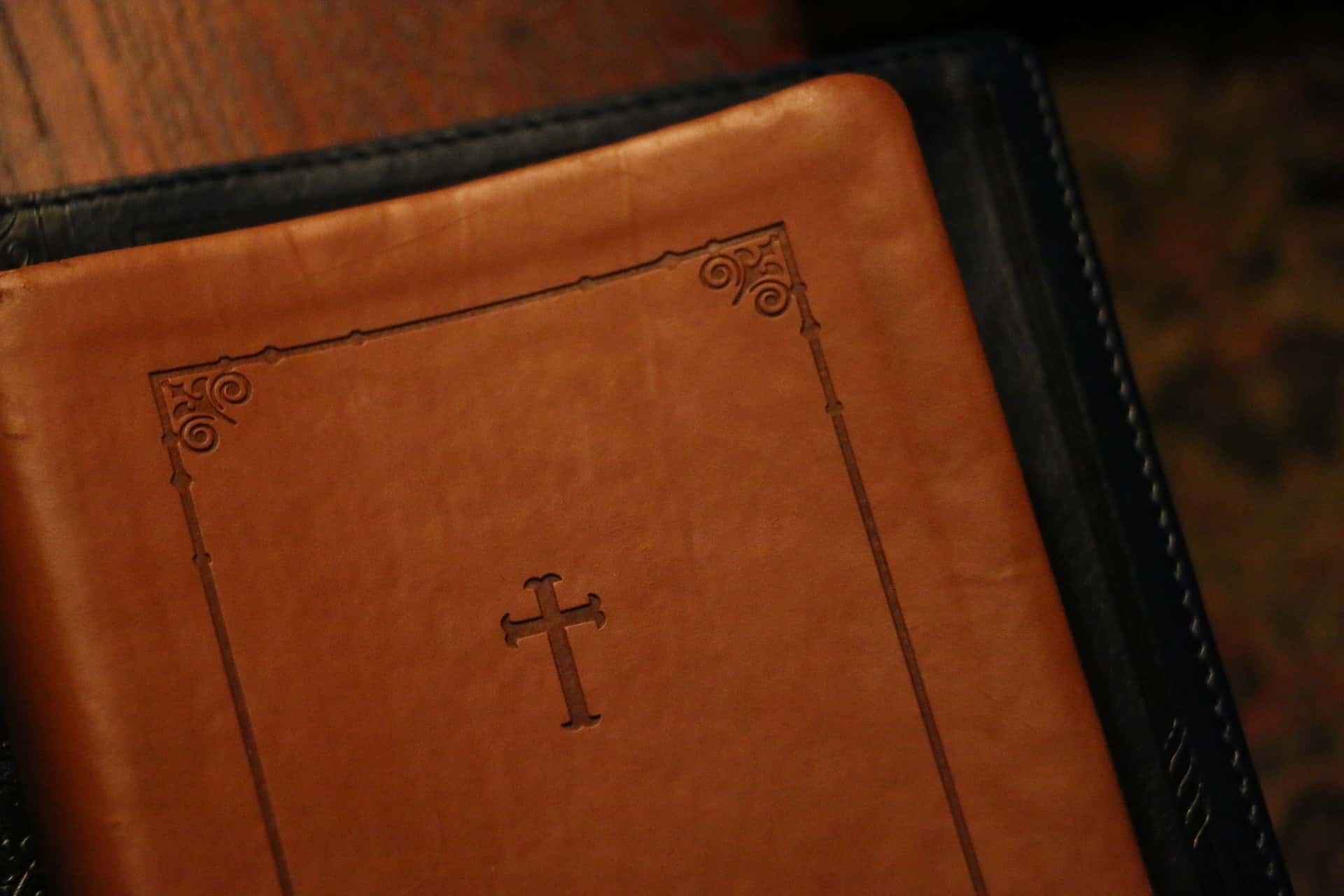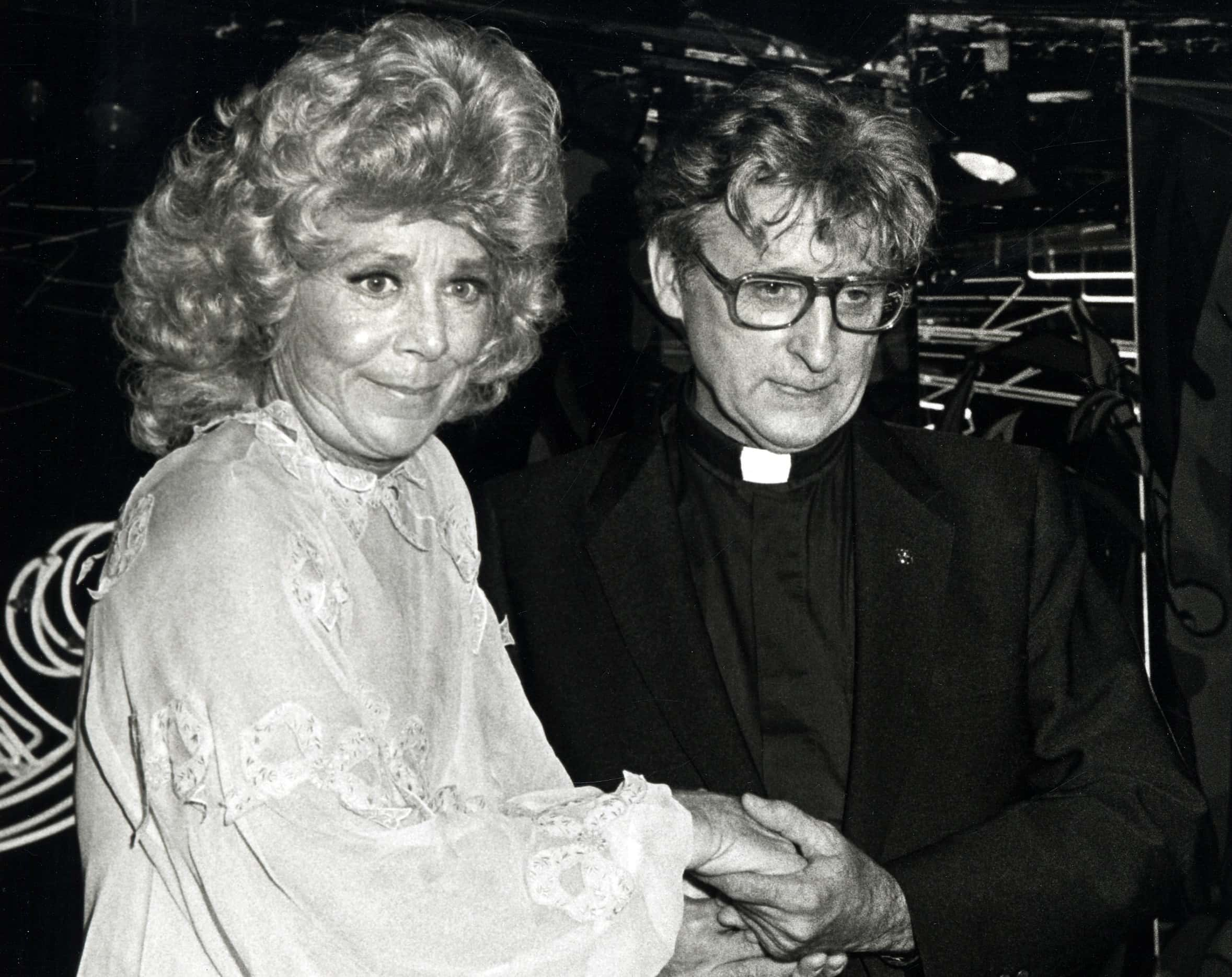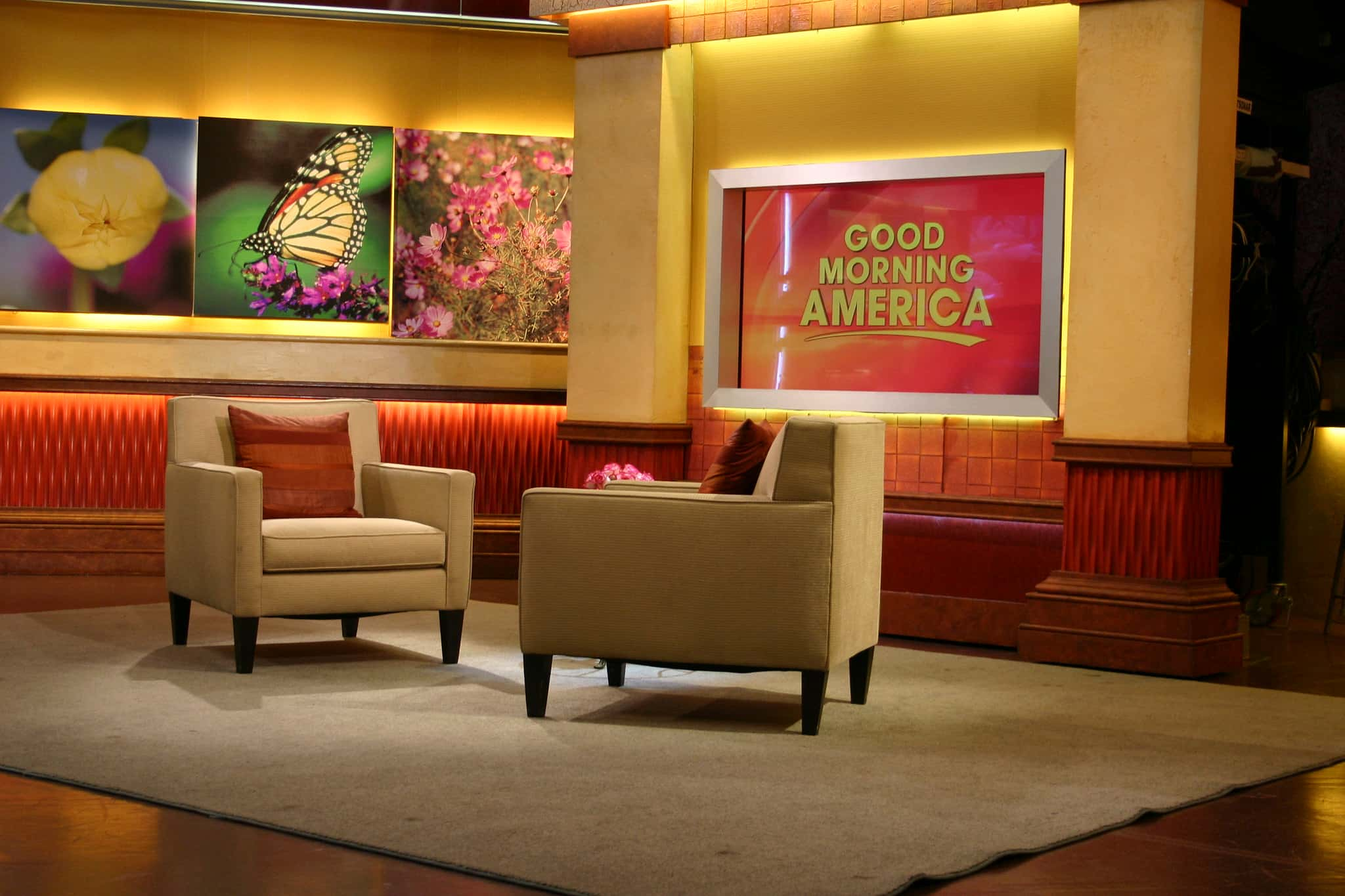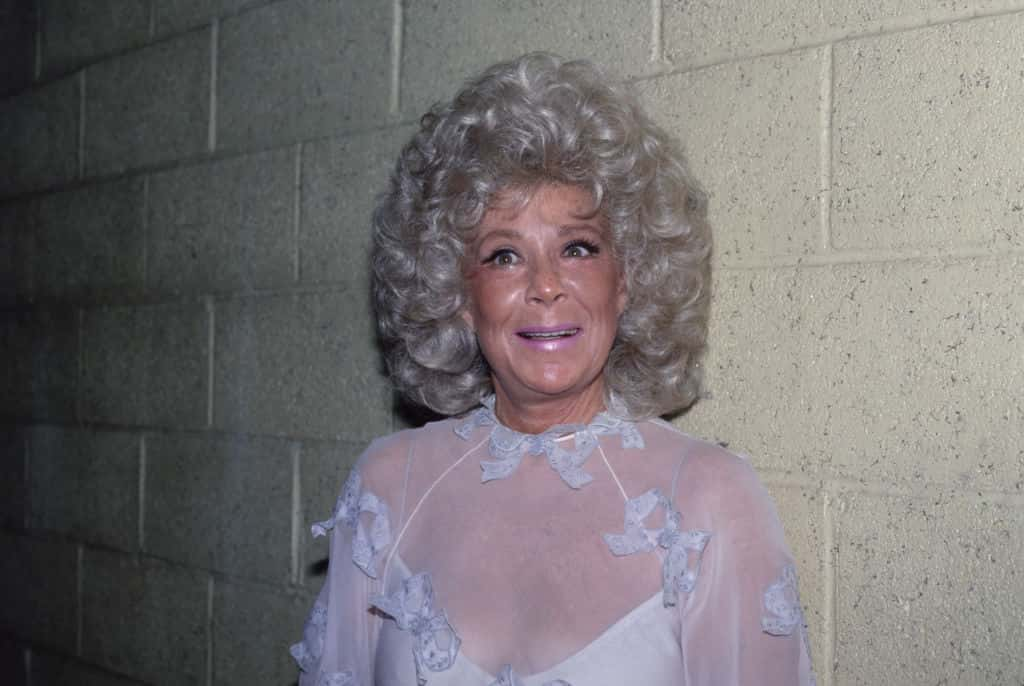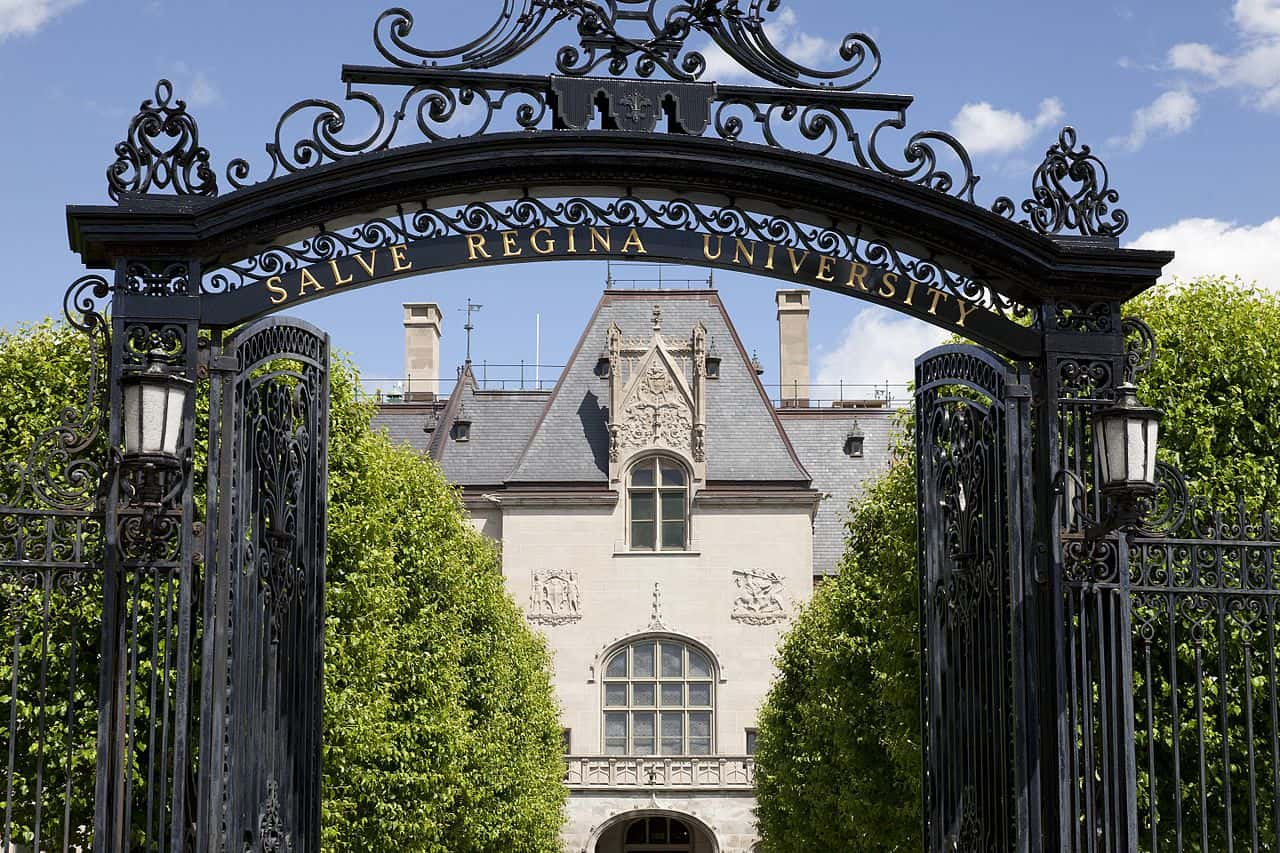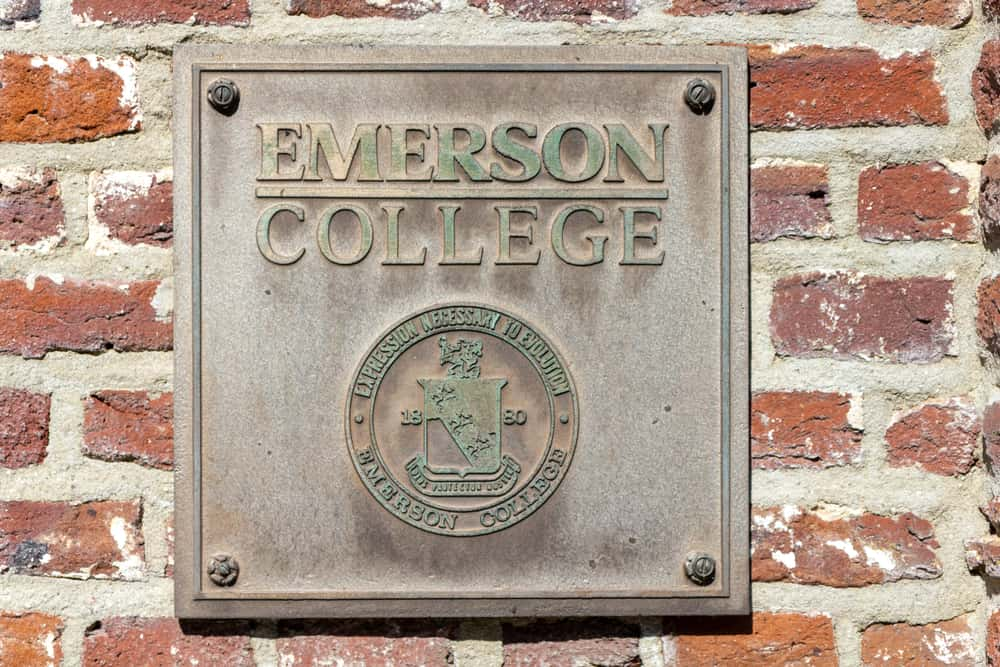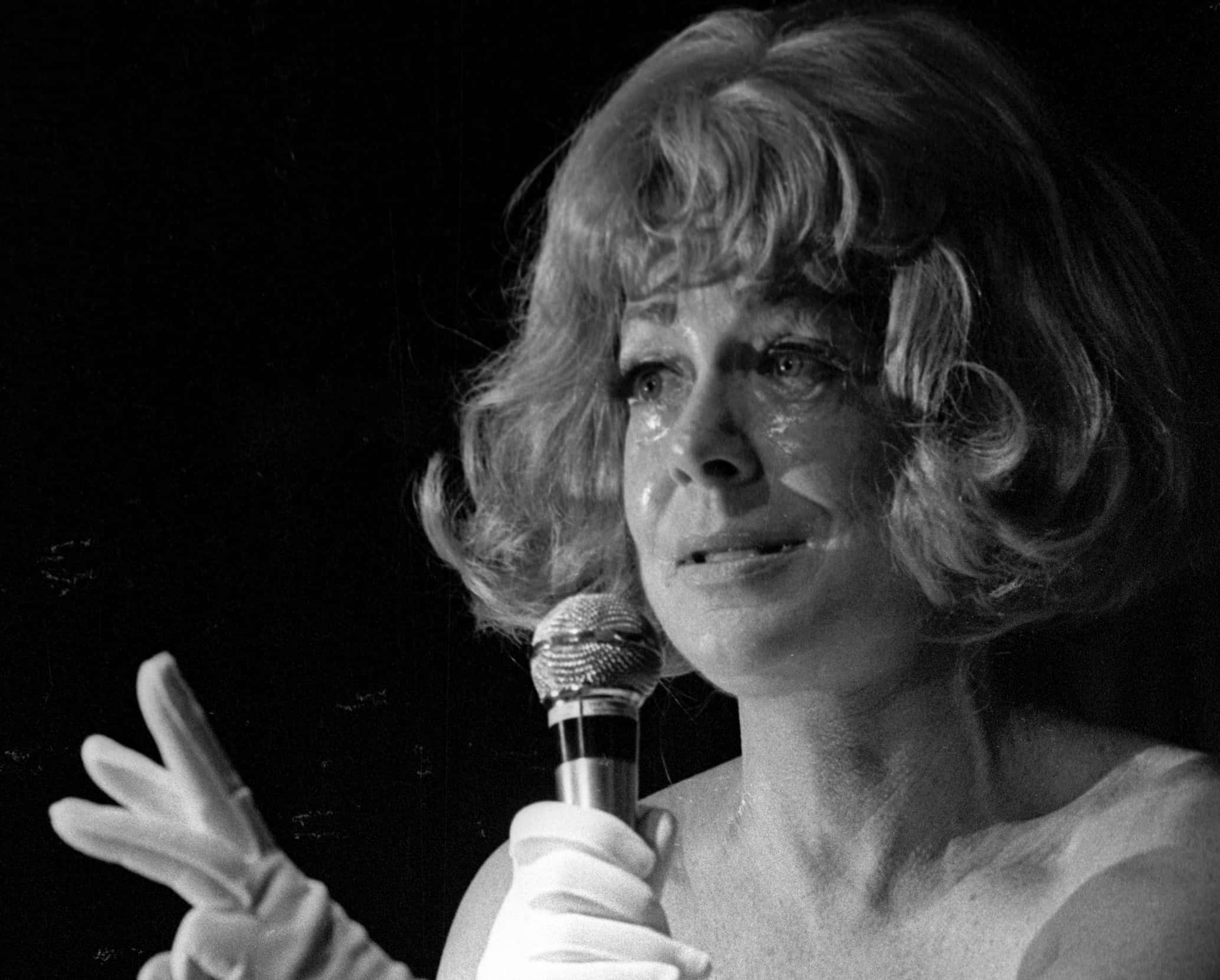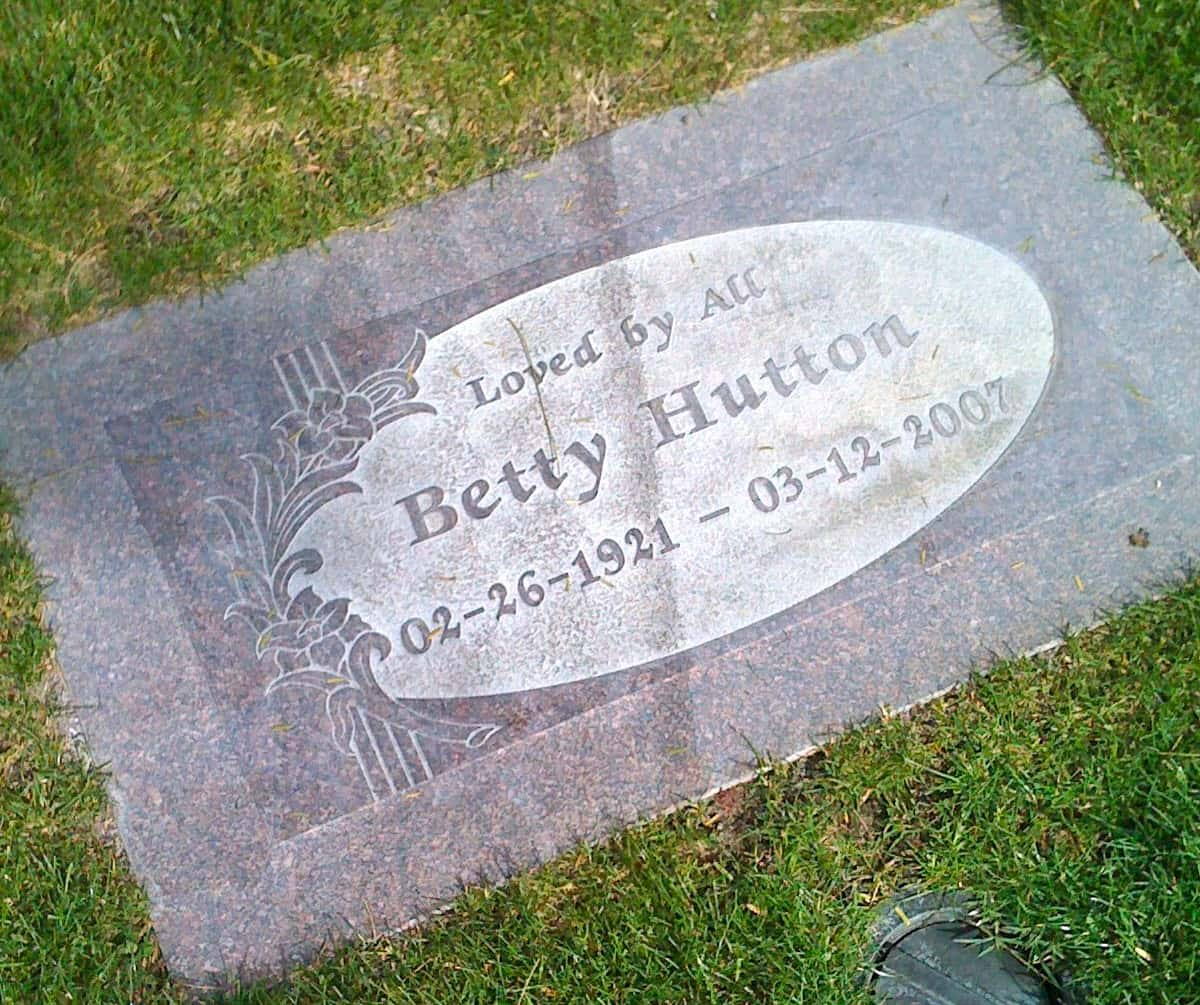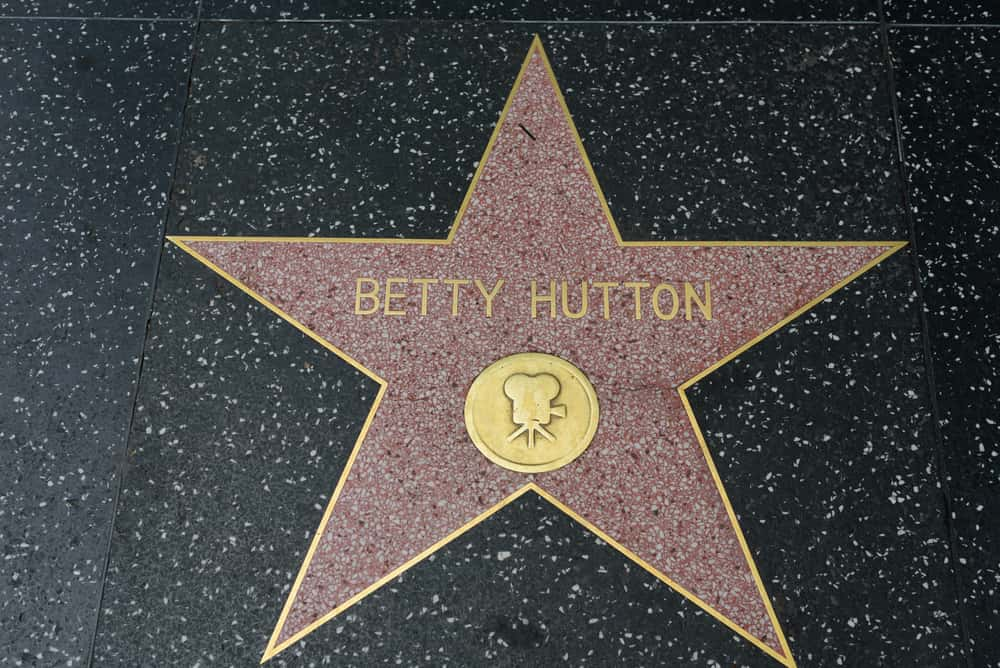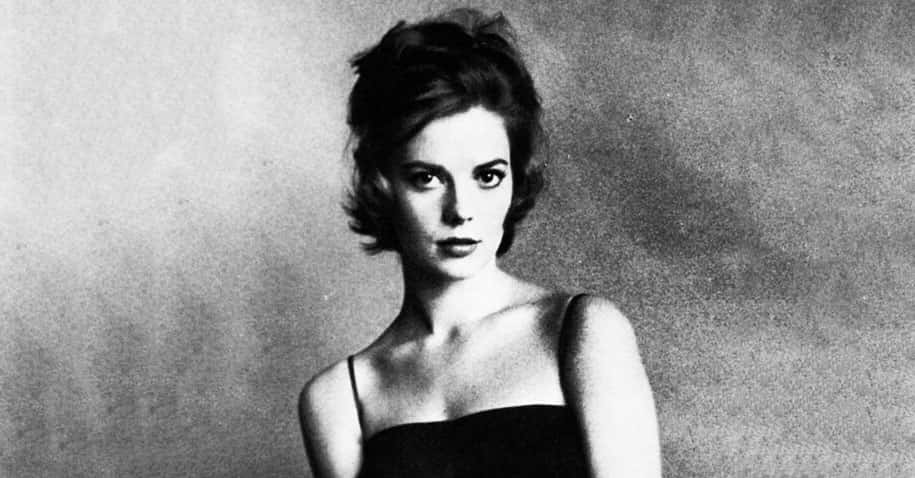No starlet in Hollywood fell quite as far as Betty Hutton. After losing her family and career, Hutton was found homeless and alone on the streets, struggling to find a place to sleep for the night. This blonde bombshell was a mere echo of the beauty she used to be—and yet, her greatest tragedy was by far her devastating end.
1. She Had A Rough Start
Elizabeth June Thornburg, better known later as Betty Hutton, was born in Michigan, in the winter of 1921. She had a hard life right from the get-go. When she was only two years old, her dad abandoned the family. Devastated, her alcoholic mom struggled to make ends meet for her two little daughters and eventually decided to move to Detroit.
Little did Hutton know, her unusual childhood was only just beginning.

2. She Had A Gift
The Thornburg women changed their surname to Hutton when they moved to Detroit. Hutton’s mother quickly dropped her odd jobs when she realized she had great talent on her hands: Both her daughters could carry a tune. As such, she decided to start a business selling the product she coveted the most: Drink...with a side of music.
Hutton's mother opened a speakeasy in the home, entertaining the guests by singing solo and with her daughters. Hutton was very young when she began to "sing for her supper"—but her mother was about to use her for SO much more.
3. She Branched Out
Because of her mother's illicit speakeasy, law-enforcement officials forced Hutton's family to move over and over again; they could never stay in one place for too long. But the hardship didn't end there. When nine-year-old Hutton landed a singing part in a school production, her mother decided to exploit her even further by hauling her all around Detroit.
Little Barbara Hutton sang her heart out for any groups that would listen, and pay to hear her. Forced into the spotlight at such a young age, Hutton had no choice but to become fearless—and her determination took her to some of the toughest stages of her life.
4. She Found New Avenues
Hutton’s undeniable talent couldn’t confine her to the local bar. She was always destined for something bigger—but her road to fame was anything but easy. Eager to branch out, she tried her hand at Broadway, but sadly, it ended in disappointment. Still, Hutton wasn't about to give up just yet. When she returned to Detroit, her luck changed for the better.
She managed to win a contest to sing in Vincent Lopez's orchestra, which played for the radio too. Even more impressive? She was only 14 years old and earning $65 a week. With a standout personality like Hutton's, it wasn't long before she carved out a niche for herself.
5. She Was Eccentric
Hutton became known as "America’s Number One Jitterbug" because of her hilarious and eccentric way of singing. Her "whoop-and-holler" style made her famous and helped her find an entry into showbiz. Warner Bros. hired her for some musical shorts like 1938's Queens of the Air. Stardom was on the horizon for our girl Betty...She just didn’t know it yet.
6. She Tried Again
Although Broadway had brutally rejected Hutton, she decided to try her luck again in 1940. This time, it welcomed her into its fold. She appeared in Two for the Show, which did reasonably well. But it was her second show that truly catapulted her to stardom. However, all's fair in love and war, or in this case, musical theater—and not everyone was happy about Hutton's success.
7. She Made Her Jealous
Hutton’s second Broadway musical was Panama Hattie, starring Ethel Merman. The play did incredibly well, and Hutton was such a huge hit that it ran for a whopping 501 performances. But while the audience loved her rambunctious style and melodic voice, Merman was not a fan. In a fit of envy, she demanded that the producer cut Hutton’s songs and stage time.
Luckily for Hutton, she had one very special person in her corner.
8. She Had A Protector
The first person to notice and do something about Hutton’s potential was producer Buddy DeSylva. He cast her in the Broadway musical Panama Hattie and only cut out one of her songs from the play, ignoring the leading lady’s insistence to cut her role in half. He was also the one to bring her on board at Paramount Pictures when he became a producer there.
This signaled the beginning of a new life for Hutton. But would her films do as well as her stage performances?
9. Her Popularity Grew
Hutton’s first film with Paramount was as a supporting actor in The Fleet’s In, released in 1942. Her signature singing style captivated the audience and she was immediately a hit. She signed up for three other light-hearted musicals, progressing up the casting list in each appearance. After putting in the work, she got her first taste of real fame.
10. She Made Bank
One of the earliest highlights of Hutton's career was when she shared the billing with Bob Hope in her third film, Let’s Face It. And let's face it, her hard work was definitely paying off. After coming from nothing, Hutton's new income put her poverty firmly behind her: She was reportedly making over $1,000 a week. However, she wasn't out of the woods yet.
Yes, she'd made a name for herself—but now she had to sustain it.
11. She Was One Of A Kind
Hutton’s over-the-top singing style had its roots in her personality. She was naturally hyperactive, and this made her very popular with her costars on set. Marie Windsor, who acted with her in Let’s Face It, recalled that everyone loved Hutton’s enthusiasm, but in retrospect, she realized that Hutton was probably very tense all the time.
Perhaps she felt this was what the audience wanted, but deep down, Hutton wanted to try something new.
12. She Took A Risk
No one wants to be a one-trick pony, and Hutton was no different. She wanted to show audiences that she could do a lot more than just sing and dance. That said, she landed the role of a naive small-town girl in The Miracle of Morgan’s Creek, a comedy by prolific writer-director Preston Sturges. There was a lot riding on this risk, but in the end, she pulled it off.
With this role, Hutton proved that she could really act.
13. Her Gamble Paid Off
The Miracle of Morgan Creek ended up being a game-changer for Hutton. One review in the Herald Tribune applauded her change from "bumptious hoyden to sweet and amusing comic actress". It received several nominations for acting and direction, and the National Board of Review presented her with the award for Best Acting. The girl was on fire, and she knew it.
And it looked like her luck wasn’t running out any time soon...Or was it?
14. She Took What She Could Get
Hutton’s subsequent films with Paramount did extremely well at the box office too. With the ball in her court, Hutton grabbed every opportunity and ran with it. This led her to a brand new venture when she signed up with Capitol Records, being one of the first artists to do so. She recorded several songs for them, sang for the radio, and even performed as a variety show host on air. But that wasn't the best part.
15. She Served Her Country
Some fight for their country, and some sing songs for it. In the mid-1940s, Hutton traveled with a USO unit for some 50,000 miles to sing for the forces in the Pacific. She was hugely popular with them, and after her performances, she received thousands of letters every week from her army fans. In spite of all this, however, Hutton’s relationship with Capitol Records took a startling turn for the worst.
16. She Had Her Own Mind
Over the years, Hutton grew unhappy with Capitol Records because she felt they were playing it too safe. She longed to sing a broad range of songs with more romantic numbers, but they kept asking her to sing songs from her old movies. Eventually, she decided she’d had enough and parted ways with them in 1945. But while some of her professional relationships crashed and burned, her romantic relationships took flight.
17. She (Thought She) Found Love
She may have been a singing sensation for the public, but that didn’t mean Hutton had a lifelong fan in her own home. However, that would soon change. After several failed relationships, she finally met Mr. Right in a Chicago café. Ted Briskin was a young camera manufacturer, and he couldn’t believe his luck to have captured the love of this young star.
But while Hutton was all smiles and overflowing with puppy love—her new romance would prove far more challenging than she realized.
18. She Had A Rocky Marriage
Hutton and Briskin tied the knot in September 1945—but the marriage only lasted six months. The newlyweds had faced a very difficult crossroad: He’d wanted her to move to Chicago, and she didn’t want to give up her career. However, not all hope was lost. Although they broke up for a short while, Briskin couldn't stay away from Hutton for long, and he came bounding back into her life.
Briskin made the sacrifice and moved to LA for the sake of Hutton's career—but there was an even bigger change waiting in the wings.
19. She Wasn't A Natural
Although Hutton didn’t have to give up her career for Briskin, one would think she’d have to slow down for a bit when she became a mother. Hutton was unstoppable though. 1946's Cross My Heart came out the year she gave birth to her first daughter, Lindsey Diane Briskin. And her inexhaustible work ethic didn't end there. The Perils of Pauline premiered the year her second daughter, Candice Briskin, was born.
From the beginning of her journey into motherhood, Betty Hutton displayed a disturbing nonchalance toward her maternal duties. Unbeknownst to the busy actress, she'd one day reap the dire consequences of her actions.
 The Perils of Pauline (1947), Paramount Pictures
The Perils of Pauline (1947), Paramount Pictures
20. She Lived Life In The Fast Lane
Hutton lived like she sang: Loud, fast, and with a lot of energy. Her life with Briskin was similarly hectic. They partied hard and had to move houses almost ten times in five years. This lifestyle might have been enough to wear Briskin out, but this wasn't necessarily the reason for their inevitable downfall. As always, her career came first—and her mounting success only disrupted her private life.
21. She Got The Chance Of A Lifetime
One person’s misfortune can be another person’s windfall. One of Hutton’s most famous movies is Annie Get Your Gun, in which she plays sharpshooter Annie Oakley, and she may never have been in the film if the director’s first choice didn’t fall through. The director originally cast Judy Garland to play the role of Annie but fired her due to her health problems.
Hutton was his second choice, but she owned the character like no other. Unfortunately, behind the scenes, Hutton's experience on set was a downright nightmare.
22. She Faced Some Hostility
Hutton’s joy knew no bounds when she got the Annie Oakley role. In an interview, she said, "I didn’t wish Judy Garland any harm, but that was my part from the beginning". Sadly for her, not everyone on set felt that way. She later confessed that the cast and crew had been "terrible" to her and made the experience "the heartbreak of [her] life". MGM didn’t even invite her to the film’s opening night.
It is no wonder then, that she acted out during that time—and the consequences were devastating.
23. She Saw Some Ups And Downs
While Annie Get Your Gun opened to rave reviews, and critics were nothing but praise for Hutton’s performance, she herself faced some tough times. You see, her husband had begun divorce proceedings. With a rollercoaster ride of emotions throwing her for a loop, Hutton dealt with them badly. Perhaps as a distraction, the pained actress threw herself into a short-term affair.
Hutton's love life was a verifiable mess. After sleeping with her co-star Robert Sterling, she bounced back to Briskin for a split second, and then finally signed divorce papers by the end of 1959. Her first marriage had lasted all of five years—but it was far more successful than her next stab at love.
24. She Was Known By Many Names
A persona as colorful as Hutton’s inspired many descriptions and earned many nicknames. After growing up as "America’s No. 1 Jitterbug," she also became known as "Blond Bombshell," "Blond Blitz,"—and courtesy of Bob Hope—as a "vitamin pill on legs". One of her nicknames was the title of her film, Incendiary Blonde, which suited her explosive personality to a tee.
Despite her volatility, however, no one could deny her commitment to her craft.
25. Her Peers Appreciated Her
Another standout moment for Hutton was when she paired up with dancing legend Fred Astaire in the musical Let's Dance, released in 1950. The film didn’t do well at the box office despite the popularity of both stars, perhaps because they were so different—Astaire being all sophistication as opposed to Hutton’s rough and humorous style.
However, he admitted that working with her kept him on his toes because she was "so talented and conscientious".
26. Things Were Going Her Way
Another big hit meant things were looking up for Hutton. She starred in Cecil B. DeMille’s The Greatest Show on Earth opposite Charlton Heston. The film won an Oscar for best film and was Hutton’s biggest movie to date. Little did she know, she’d reached the height of success at this point, and from there on out, her career began to nosedive in the worst way imaginable.
 The Greatest Show on Earth (1952), Paramount Pictures
The Greatest Show on Earth (1952), Paramount Pictures
27. She Had An Accident
The Greatest Show on Earth brought fame and fortune to Hutton, but she also had to pay a price for it. Filming took place in Florida, where she had to train for her role of a trapeze artist for months. Unfortunately, she injured her arm during training one day and had to take prescription-strength painkillers for quite some time to recover.
This was the turning point that would lead to Hutton's horrifying addiction to pills.
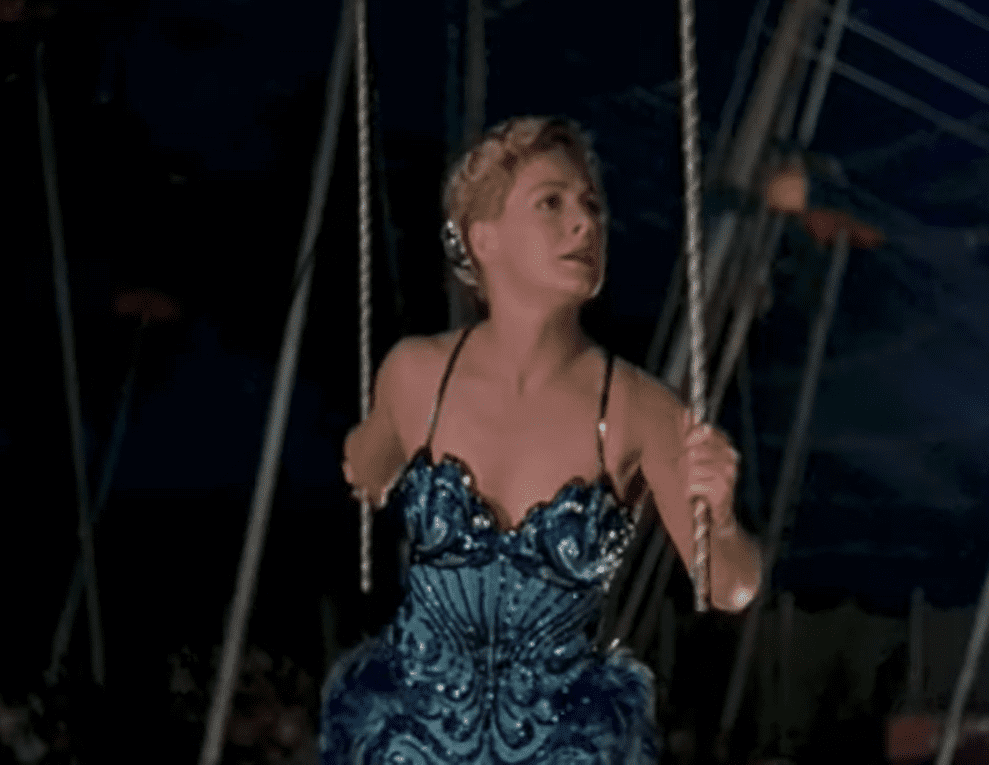 The Greatest Show on Earth (1952), Paramount Pictures
The Greatest Show on Earth (1952), Paramount Pictures
28. She Met Someone New
Hutton’s next film would have been unremarkable if it wasn’t for one little detail: She met someone on set. Charles O’ Curran was the choreographer, and while their relationship seemed somewhat "stormy" to others, the couple was obviously in love. Soon after finishing the film, Hutton and O'Curran eloped. However, heartbreakingly for Hutton, this relationship would only hurt her, and her career, in the long run.
29. She Made An Unwise Decision
Hutton had a great relationship with Paramount for many years, but it started going south the year Buddy DeSilva, the man who brought her there, passed. It may still have survived if Hutton hadn't decided to stir things up by insisting the studio let her husband direct her next film. They refused and in a fit of rage, she walked out on them. This was a huge mistake.
She soon realized her folly when all other studios boycotted her, and she had to think on her feet in order to stay relevant.
30. She Had A Spate Of Bad Luck
Since no one was offering any more films to Hutton, she went back on the nightclub circuit, determined to continue her career in any way possible. She also signed on a TV series titled Satins and Spurs, inspired by her Annie Oakley musical. Hopeful about it doing well, Hutton felt crushed when it failed, and her knee-jerk reaction was to announce her retirement.
She told the press, "I've got to quit or blow my top. I had to do something to get noticed. I stood on my head, turned cartwheels, yelled, and screamed. I can't take the heartbreak anymore. It's not as glamorous as it seems". And if that wasn’t enough, she made a surprise announcement about her personal life too.
31. She Switched Partners
It's safe to say that Hutton's second husband was bad news, and three years later, Hutton knew it too and announced her divorce from O'Curran. However, there was a surprise twist. Only three days later, she announced her subsequent marriage to recording executive, Alan Livingston, who was also recently divorced. The new couple settled in Hollywood, and Hutton decided to turn her energies towards another aspect of her life.
32. She Focused On A New Role
After two failed marriages, Hutton decided she wanted to make this one a success. She gave up on trying to find work for a while and directed her attention towards her two daughters and Livingston’s two kids, a boy and a girl. This was all very well for a while, but then she started getting restless. One heartbreaking miscarriage later, and Hutton began dreaming of acting all over again: She wanted another shot.
33. She Made A Comeback
Hutton found work in 1957's Spring Reunion—but this would turn out to be her last feature film. Although she gave a restrained and sensitive performance, it just didn't do well enough at the box office to help kick start her career again. Sadly, Hutton took this gamble to focus on her ambitions—but it went nowhere and ended up impacting her personal life too.
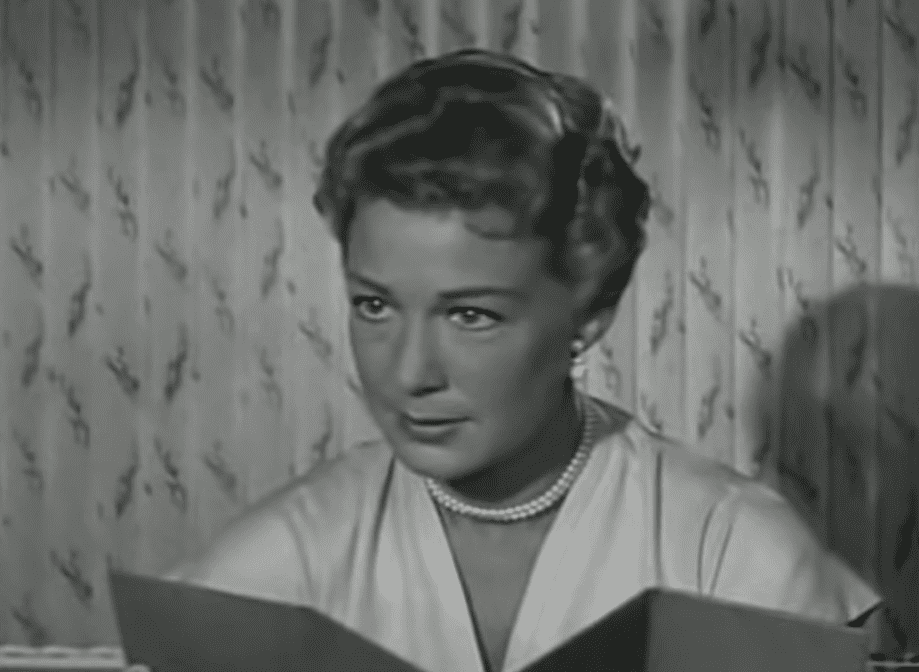 Spring Reunion (1957), United Artists
Spring Reunion (1957), United Artists
34. Her Relationships Suffered
By this time, Hutton and Livingston had decided they couldn’t make the relationship work. She announced her plans to divorce again, and after a brief period of on-and-off reconciliations, the couple went their separate ways. However, all of this upheaval took a toll on her daughters, and this fraught period of Hutton's life influenced their opinions of her forever...and not in a good way.
35. She Wanted A Fresh Start
Whatever you may say of her, Hutton wasn’t a quitter. She decided to start afresh with jazz trumpeter Peter Candoli. They married the same year she divorced Livingston and had a baby girl, Carolyn, the year after. She also tried her hand at directing and acting in her own show, The Betty Hutton Show. Unfortunately, it was a downright disaster.
36. Her Health Suffered
Hutton produced The Betty Hutton Show in collaboration with Desilu Productions and spent all her money in trying to ensure it would be a hit. In a heartbreaking twist of events, it completely flopped. She didn’t trust anyone else with it and tried to do most things herself, which didn’t work out at all. As a result, her health and money dwindled, and she found herself in a very dark place.
Even so, Hutton's depressing situation was about to get SO much worse.
37. She Lost Her Person
Hutton faced another huge tragedy when her mom passed in a fire in 1967. Although their relationship had been anything but warm and loving, she was close to her mom like no one else, and with her passing, she felt like she was completely alone in the world. These feelings of loneliness and low self-esteem would culminate in nothing good.
38. She Was At An All-Time Low
Hutton realized she’d hit an all-time slump in 1967. She declared herself bankrupt and faced the end of yet another marriage. But that was just the tip of the iceberg. Betty Hutton was utterly alone: Her daughters were living with their father, her sister was out of the picture, and her mother had passed. With no money and nobody to turn to, she did the unthinkable.
39. She Lived On The Streets
Hutton's life completely imploded and she started living on the streets, spending her nights languishing at seedy hotels. Finally, one establishment kicked her out and took her to a minister who agreed to take her in. She regained some of her strength and her singing voice—enough to make an onstage appearance for an Annie Get Your Gun performance...but it ended badly.
40. She Collapsed On Stage
Betty Hutton's lifelong addiction to prescription meds and the frail state of her health led to her collapsing on stage. It would have been the end of Hutton if it wasn’t for an extraordinary miracle. At this point, Hutton weighed 85 lbs and had no will to live. She was in a Boston hospital when she saw a priest who was there to check on his sick cook.
She felt drawn to him immediately and asked about him when his cook felt better enough to talk. Everything she learned about Father Maguire convinced her that he could help her out of her rut. And this time, her instincts were spot on.
41. She Found Redemption
Hutton lived in a Rectory for five years, working as Father Maguire’s housekeeper. She saw in him a father figure which had been sorely lacking in her own life. In those years, she felt drawn to religion and Christ and eventually converted to Catholicism. She felt safe with Father Maguire who took it upon himself to fill in the gaps of her education and helped her complete high school education.
42. Not Everyone Had Forgotten Her
When news got out that Hutton was working at a Rectory, some of her old friends got together to try and help her. They held a "Love-In for Betty Hutton" and raised about $10,000. This cheered her up, but she realized she still couldn’t get steady work in Hollywood. She made some TV appearances, but one, in particular, gave her a chance to make up for some past actions.
43. She Did Some Reconnecting
Good Morning America invited Hutton over and showed a televised reunion between her and her daughters. She even started living in California with one of them, who was recently divorced, and it seemed like things would finally get better for her since she still had family around. Unfortunately, this relationship was never meant to last.
44. She Made A Brief Comeback
Hutton made a short comeback to Broadway in 1980, when, for three weeks, she filled in for the actor playing Miss Hartigan in the immensely popular musical, Annie. She did an excellent job, with critics calling her a "one-woman fireworks display that lights up the stage". The best part of this role for her was the fact that her grandkids came to watch her on stage.
However, she moved back to Newport soon after her performance, and this would be the last she saw of her daughter and grandchildren.
45. She Changed Her Path
After she made her way back to Newport, Hutton decided she had to put her energy to good use. She enrolled in Salve Regina College and achieved a Master’s degree in Psychology in 1983. From a ninth-grade dropout to an out-of-work actor and singer, Hutton had certainly come very far.
46. She Focused On Her Present
After she got her degree, Hutton started teaching Drama and Acting at Salve, as well as at Boston’s Emerson College. She loved what she was doing as she could "give Betty to them—not just the commodity, the hotdog". In the meantime, she continued to stay in touch with her beloved savior, Father Maguire. Hutton was in a good place, but sadly there was another tragedy in store for her.
47. She Faced Another Loss
Hutton felt heartbroken when Father Maguire passed in 1997. He’d had diabetes and was a heart patient, so his passing wasn’t completely unexpected, but it left her feeling bereft and alone. Unable to cope, she decided she needed to do something to help her move on from the incident. The event signaled yet another change in Hutton’s life.
48. She Was Alone
Since living in Boston meant facing the pain of Father’s absence every day, Hutton decided to move far away. She moved to Palm Springs, California in 1997. Once she was there, Hutton got in touch with her daughters and tried to reconnect with them again. Unfortunately, she was in for a nasty surprise. Hutton discovered that her daughters didn’t want anything to do with her.
She reached out to them a few times, but they never responded. In an interview she gave Robert Osbourne in 2000, she mentioned this, saying she didn’t begrudge her daughters for anything. Hutton acknowledged that it wouldn’t be easy for anyone to accept an elderly, sick mother so late in life.
49. She Suffered One Last Tragedy
Considering the turbulent life she’d led, Hutton had a relatively peaceful ending. Doctors diagnosed her with colon cancer, and after some complications, she passed at the age of 86 in her own home. However, there was still one tragedy waiting for her in the wings: Her daughters didn’t even come to her funeral. Her final resting place is in Desert Memorial Park, California.
50. Her Friends Remembered Her Fondly
Hutton had made friends with singer-songwriter Kristin Hersh while studying at Salve Regina. Hersh later wrote "Elizabeth June," in loving memory of her friend, and even talked about her in her memoir, Rat Girl. Another friend, A.C. Lyles, who had known her since early days at Paramount, spoke of her glowingly at her memorial service: "The next time...there’s…thunder and lightning, that’s Betty raising [heck] with God,"
And while it may be true that Hutton didn’t always make the best decisions in life, it can’t be denied that she played her hand as best she could—with admirable spirit and resilience.

